 Colon polyps are rather common, and there is a specific type of polyps that increases the risk of colon cancer, which is also a widespread problem. According to a new clinical study from the University of Leeds in England, a concentrated form of the omega-3 fatty acid, EPA, which is found in oily fish and fish oil supplements, helps reduce the number of colon polyps. The same is the case with aspirin. The two preparations work differently, however, depending on where in the colon the polyps are found, and aspirin may have long-term side effects. Earlier research has shown that supplements of selenium and antioxidants have a preventive effect, which appears to be even greater.
Colon polyps are rather common, and there is a specific type of polyps that increases the risk of colon cancer, which is also a widespread problem. According to a new clinical study from the University of Leeds in England, a concentrated form of the omega-3 fatty acid, EPA, which is found in oily fish and fish oil supplements, helps reduce the number of colon polyps. The same is the case with aspirin. The two preparations work differently, however, depending on where in the colon the polyps are found, and aspirin may have long-term side effects. Earlier research has shown that supplements of selenium and antioxidants have a preventive effect, which appears to be even greater.
 The majority of chronic ailments, including autoimmune diseases like rheumatoid arthritis, depression, Alzheimer’s disease, diabetes, and cancer, involve inflammation. Science has known for a long time that omega-3 fatty acids counteract inflammation. A study from the University of Illinois, USA, shows that the process is controlled by cannabinoids, which the body itself can produce but are also found in cannabis oil. In other words, it is possible to activate the body’s cannabinoid receptors in the immune system and nervous system by means of large quantities of fish oil, which contains the most active forms of omega-3.
The majority of chronic ailments, including autoimmune diseases like rheumatoid arthritis, depression, Alzheimer’s disease, diabetes, and cancer, involve inflammation. Science has known for a long time that omega-3 fatty acids counteract inflammation. A study from the University of Illinois, USA, shows that the process is controlled by cannabinoids, which the body itself can produce but are also found in cannabis oil. In other words, it is possible to activate the body’s cannabinoid receptors in the immune system and nervous system by means of large quantities of fish oil, which contains the most active forms of omega-3.
- and help prevent dementia, depression, and impairment of your cognitive skills
 People with elevated levels of omega-3 fatty acids in their blood have better circulation in those parts of the brain that handle learning, language, memory, and other cognitive functions, according to a recent report that is published in the Journal of Alzheimer’s Disease. The scientists also observed a link between blood levels of omega-3 and the rate of dementia and depression. They call their study an important discovery that supports earlier studies, which have shown how simple dietary adjustments such as increasing your intake of oily fish or fish oil supplements help preserve mental skills and a healthy mind.
People with elevated levels of omega-3 fatty acids in their blood have better circulation in those parts of the brain that handle learning, language, memory, and other cognitive functions, according to a recent report that is published in the Journal of Alzheimer’s Disease. The scientists also observed a link between blood levels of omega-3 and the rate of dementia and depression. They call their study an important discovery that supports earlier studies, which have shown how simple dietary adjustments such as increasing your intake of oily fish or fish oil supplements help preserve mental skills and a healthy mind.
– whereas the often scolded cholesterol is good for you
 Cardiovascular diseases account for more deaths than anything else. Still, there is a lot of discussion about the diet and its impact on cardiovascular health, typically when it comes to the question of avoiding fat and choosing margarine instead of butter. A team of Czech scientists decided to study diet habits among different populations and compare these with the risk of cardiovascular disease and premature death. Their study shows that there is no need to be afraid of cholesterol. In fact, the official dietary guidelines could easily do with an adjustment. At the same time, it is important to reduce our intake of carbohydrates and omega-6 fatty acids that are the real culprits. Finally, it is essential to increase the intake of omega-3.
Cardiovascular diseases account for more deaths than anything else. Still, there is a lot of discussion about the diet and its impact on cardiovascular health, typically when it comes to the question of avoiding fat and choosing margarine instead of butter. A team of Czech scientists decided to study diet habits among different populations and compare these with the risk of cardiovascular disease and premature death. Their study shows that there is no need to be afraid of cholesterol. In fact, the official dietary guidelines could easily do with an adjustment. At the same time, it is important to reduce our intake of carbohydrates and omega-6 fatty acids that are the real culprits. Finally, it is essential to increase the intake of omega-3.
 One in nine Danish women gets breast cancer. Diet and lifestyle play a major role, and now an American study shows that omega-3 fatty acids, which are typically found in oily fish and fish oil supplements, may help prevent breast cancer cells from growing and spreading. According to lead investigator Saraswoti Khadge, who is affiliated with the University of Nebraska Medical Center, omega-3 fatty acids support the body’s immune defense and certain anti-inflammatory mechanisms. This study is in line with earlier research, so it may very well be prudent to make sure to get plenty of omega-3 for preventing and treating breast cancer.
One in nine Danish women gets breast cancer. Diet and lifestyle play a major role, and now an American study shows that omega-3 fatty acids, which are typically found in oily fish and fish oil supplements, may help prevent breast cancer cells from growing and spreading. According to lead investigator Saraswoti Khadge, who is affiliated with the University of Nebraska Medical Center, omega-3 fatty acids support the body’s immune defense and certain anti-inflammatory mechanisms. This study is in line with earlier research, so it may very well be prudent to make sure to get plenty of omega-3 for preventing and treating breast cancer.
 It is commonly known that oily fish and fish oil supplements contain the two omega-3 fatty acids EPA and DHA that are good for the brain. Now, scientists from Singapore have discovered a special omega-3 fatty acid that is of particular importance to brain cells that are surrounded by a protective myeline sheath. The scientists say that their discovery may help prevent brain ageing and lead to the development of new therapies aimed at treating neurological disorders like sclerosis that are associated with myelin damage. Their new study is published in Journal of Clinical Investigation and it appears that fish roe is the best source of these special omega-3 fatty acids that are needed to stimulate the myeline sheath.
It is commonly known that oily fish and fish oil supplements contain the two omega-3 fatty acids EPA and DHA that are good for the brain. Now, scientists from Singapore have discovered a special omega-3 fatty acid that is of particular importance to brain cells that are surrounded by a protective myeline sheath. The scientists say that their discovery may help prevent brain ageing and lead to the development of new therapies aimed at treating neurological disorders like sclerosis that are associated with myelin damage. Their new study is published in Journal of Clinical Investigation and it appears that fish roe is the best source of these special omega-3 fatty acids that are needed to stimulate the myeline sheath.
- which your brain, nervous system, and liver need
 A cold beer with lunch or a glass of red wine to go with your steak may be tempting. In fact, alcohol in limited amounts can be relaxing and it provides beneficial antioxidants. However, Danes drink too much, and our excessive alcohol consumption is one of the worst threats to public health. Many alcoholics suffer from unstable blood sugar levels, which can have a rather bad impact on their willpower. In addition, the empty calories deplete the body’s levels of vitamins, minerals, and essential fatty acids, on which the nervous system, the brain, and the liver depend. This can easily turn into a vicious cycle. Therefore, having stable blood sugar and making sure to get plenty of vital nutrients is important for preventing and treating alcohol abuse.
A cold beer with lunch or a glass of red wine to go with your steak may be tempting. In fact, alcohol in limited amounts can be relaxing and it provides beneficial antioxidants. However, Danes drink too much, and our excessive alcohol consumption is one of the worst threats to public health. Many alcoholics suffer from unstable blood sugar levels, which can have a rather bad impact on their willpower. In addition, the empty calories deplete the body’s levels of vitamins, minerals, and essential fatty acids, on which the nervous system, the brain, and the liver depend. This can easily turn into a vicious cycle. Therefore, having stable blood sugar and making sure to get plenty of vital nutrients is important for preventing and treating alcohol abuse.
 According to a study that is published in PLoS Medicine’s Special Issue on Dementia shows that low levels of polyunsaturated fatty acids in the brain may speed up the development of Alzheimer’s disease. It is therefore vital not to shy away from dietary fats. What is important, however, is to consume unspoiled sources of omega-3 and omega-6 fatty acids in the proper balance. Polyunsaturated fatty acids have numerous functions in the brain, on which our nervous system, cardiovascular system, memory, learning ability, and lingual skills depend.
According to a study that is published in PLoS Medicine’s Special Issue on Dementia shows that low levels of polyunsaturated fatty acids in the brain may speed up the development of Alzheimer’s disease. It is therefore vital not to shy away from dietary fats. What is important, however, is to consume unspoiled sources of omega-3 and omega-6 fatty acids in the proper balance. Polyunsaturated fatty acids have numerous functions in the brain, on which our nervous system, cardiovascular system, memory, learning ability, and lingual skills depend.
- intake that also reduces their need for medicine
 An estimated 334 million people worldwide suffer from asthma, which is associated with chronic inflammation. Increased intake of omega-3 fatty acids may help prevent the disease and improve therapies by reducing inflammation in the upper respiratory tract. Also, omega-3 reduces the need for corticosteroids and other types of asthma medicine. In fact, the diet plays a vital role in the development of asthma, and overweight individuals seem to benefit particularly much from an increased omega-3 intake, according to a study that is published in Nutrients. But how much omega-3 does it take to inhibit inflammation, and why are oily fish and fish oil supplements better sources?
An estimated 334 million people worldwide suffer from asthma, which is associated with chronic inflammation. Increased intake of omega-3 fatty acids may help prevent the disease and improve therapies by reducing inflammation in the upper respiratory tract. Also, omega-3 reduces the need for corticosteroids and other types of asthma medicine. In fact, the diet plays a vital role in the development of asthma, and overweight individuals seem to benefit particularly much from an increased omega-3 intake, according to a study that is published in Nutrients. But how much omega-3 does it take to inhibit inflammation, and why are oily fish and fish oil supplements better sources?
 Studies show that large quantities of B vitamins are able to slow mild cognitive impairment, which is an early stage of dementia and Alzheimer's disease. A more recent study suggests, however, that B vitamins are not effective, unless the body is properly supplied with the omega-3 fatty acids that are found in fish oil.
Studies show that large quantities of B vitamins are able to slow mild cognitive impairment, which is an early stage of dementia and Alzheimer's disease. A more recent study suggests, however, that B vitamins are not effective, unless the body is properly supplied with the omega-3 fatty acids that are found in fish oil.
 After giving birth, the mother’s adaptability and resources are put to the test. Also, the mother’s “baby brain” tends to take over. Unfortunately, many new mothers get the baby blues, and around 10 percent develop an actual postpartum depression that requires immediate attention. It is important to focus on the underlying causes that include the course of the delivery plus hormonal, biological, social, and emotional changes.
After giving birth, the mother’s adaptability and resources are put to the test. Also, the mother’s “baby brain” tends to take over. Unfortunately, many new mothers get the baby blues, and around 10 percent develop an actual postpartum depression that requires immediate attention. It is important to focus on the underlying causes that include the course of the delivery plus hormonal, biological, social, and emotional changes.
 Apparently so. Omega-3 is a class of essential fatty acids with a host of different functions in the body. We primarily get omega-3 from oily fish but it is also found in certain other foods. Our intake of omega-3 has been reduced substantially as a result of altered diets and the use of unnatural animal feed. It appears that having more omega-3 in the blood can help us live longer. This was shown in a study that is published in American Journal of Clinical Nutrition. The question is how do we get enough omega-3?
Apparently so. Omega-3 is a class of essential fatty acids with a host of different functions in the body. We primarily get omega-3 from oily fish but it is also found in certain other foods. Our intake of omega-3 has been reduced substantially as a result of altered diets and the use of unnatural animal feed. It appears that having more omega-3 in the blood can help us live longer. This was shown in a study that is published in American Journal of Clinical Nutrition. The question is how do we get enough omega-3?
- and a common trait in most chronic diseases
 Although chronic inflammation is not something that you feel as such, it sets the stage for a number of symptoms and a host of different diseases including fatigue, overweight, diabetes, cardiovascular disease, rheumatism, metabolic disorders, asthma, periodontal disease, bowel infections, depression, Alzheimer’s disease, sclerosis, and cancer. Not surprisingly, people are more and more hooked on the anti-inflammatory lifestyle, and we will take a closer look at studies showing how fish oil, vitamin D, selenium, magnesium, and zinc contribute to preventing and fighting inflammation, related diseases and premature death. Any nutritional supplements must be of a proper quality that the body can absorb, and they should contain therapeutic dosages.
Although chronic inflammation is not something that you feel as such, it sets the stage for a number of symptoms and a host of different diseases including fatigue, overweight, diabetes, cardiovascular disease, rheumatism, metabolic disorders, asthma, periodontal disease, bowel infections, depression, Alzheimer’s disease, sclerosis, and cancer. Not surprisingly, people are more and more hooked on the anti-inflammatory lifestyle, and we will take a closer look at studies showing how fish oil, vitamin D, selenium, magnesium, and zinc contribute to preventing and fighting inflammation, related diseases and premature death. Any nutritional supplements must be of a proper quality that the body can absorb, and they should contain therapeutic dosages.
 According to a study from Columbia University’s College of Dental Medicine and Vagelos College of Physicians and Surgeons, there are certain compounds in fish oil that can prevent pregnancy complications that follow in the wake of a regular bacterial infection. These complications include miscarriage, preterm delivery, and infant death. There are an estimated 15 million premature deliveries per year on a global scale, and each year around one million babies die as a result of this. Preterm infants also have an increased risk of vision impairment, retarded physical development, and learning disabilities. The researchers therefore suggest new strategies for recommending nutritional supplements and fish oil supplements during pregnancy.
According to a study from Columbia University’s College of Dental Medicine and Vagelos College of Physicians and Surgeons, there are certain compounds in fish oil that can prevent pregnancy complications that follow in the wake of a regular bacterial infection. These complications include miscarriage, preterm delivery, and infant death. There are an estimated 15 million premature deliveries per year on a global scale, and each year around one million babies die as a result of this. Preterm infants also have an increased risk of vision impairment, retarded physical development, and learning disabilities. The researchers therefore suggest new strategies for recommending nutritional supplements and fish oil supplements during pregnancy.
 A pregnant woman can support the development of her baby’s brain and vision by consuming oily fish regularly, according to a new Finnish study. Meanwhile, a new Danish study shows that fish oil supplements given to pregnant women give their offspring a better start at life because of their content of omega-3 fatty acids. Unfortunately, the consumption of omega-3 has gone down, and pregnant women are discouraged from eating tuna and other good sources of omega-3, as these fish contain mercury. Health authorities should take this dilemma into account and possibly recommend high-quality supplements of purified fish oil to pregnant women and small children – just like they recommend extra folic acid, iron, and vitamin D. Pregnant vegetarians and vegans should pay careful attention and make sure that their child gets enough omega-3.
A pregnant woman can support the development of her baby’s brain and vision by consuming oily fish regularly, according to a new Finnish study. Meanwhile, a new Danish study shows that fish oil supplements given to pregnant women give their offspring a better start at life because of their content of omega-3 fatty acids. Unfortunately, the consumption of omega-3 has gone down, and pregnant women are discouraged from eating tuna and other good sources of omega-3, as these fish contain mercury. Health authorities should take this dilemma into account and possibly recommend high-quality supplements of purified fish oil to pregnant women and small children – just like they recommend extra folic acid, iron, and vitamin D. Pregnant vegetarians and vegans should pay careful attention and make sure that their child gets enough omega-3.
 Several studies show that nutritional supplements may help against aggressive behavior in children. Based on this knowledge, American researchers have tested the effect of combining supplements of fish oil, vitamins, and minerals with psychological treatment - and it appears to improve the outcome.
Several studies show that nutritional supplements may help against aggressive behavior in children. Based on this knowledge, American researchers have tested the effect of combining supplements of fish oil, vitamins, and minerals with psychological treatment - and it appears to improve the outcome.
 Choose natural solutions instead of potentially lethal medicine
Choose natural solutions instead of potentially lethal medicine
Rheumatic diseases and aching joints are extremely common. One in eight Europeans takes arthritis medication, thereby increasing his or her risk of numerous side effects and premature death. Rheumatism and aching joints are typically caused by inflammation. Research shows that the problems can often be treated with dietary changes and the use of supplements that address the underlying causes and make the pain vanish by itself.
Arthritis drugs take more lives than diabetes and traffic accidents. 7-8% of Europeans use anti-inflammatory painkillers that increase their risk of sensitive gastro-intestinal mucous membranes, indigestion, bleeding ulcers, heart disease, and thrombosis. Calculations show that arthritis drugs take more lives every year than traffic fatalities and diabetes together, making this type of medicine a far greater threat. Most people are unaware of this.
 If you are pregnant it may be wise to eat salmon. According to a new study it lowers your child's risk of developing asthma, which is a rather common ailment. But what is it in salmon that prevents asthma, and what about those who dislike the taste of fish?
If you are pregnant it may be wise to eat salmon. According to a new study it lowers your child's risk of developing asthma, which is a rather common ailment. But what is it in salmon that prevents asthma, and what about those who dislike the taste of fish?
 Oily fish and fish oil have a high content of the two omega-3 fatty acids, EPA (eicosapentaenoic acid) and DHA (docosahexaenoic acid), that are important for our brain, nervous system, intelligence, and mental health. Modern diets, however, are to blame for our lack of omega-3. A team of scientists from England has found that supplementation with EPA-rich fish oil for 26 weeks improves mental acuity and reaction time in healthy, young adults. This was not the case with DHA-rich oil fish oil, on the other hand. The scientists were surprised to find that EPA is more important than DHA for these cognitive skills.
Oily fish and fish oil have a high content of the two omega-3 fatty acids, EPA (eicosapentaenoic acid) and DHA (docosahexaenoic acid), that are important for our brain, nervous system, intelligence, and mental health. Modern diets, however, are to blame for our lack of omega-3. A team of scientists from England has found that supplementation with EPA-rich fish oil for 26 weeks improves mental acuity and reaction time in healthy, young adults. This was not the case with DHA-rich oil fish oil, on the other hand. The scientists were surprised to find that EPA is more important than DHA for these cognitive skills.
There are good and solid evidence for the health benefits of omega-3 fatty acids. More recently, a new scientific study from Norway published in the Journal of Nutrition shows that supplementation with fish oil either equals or was better than eating fish regarding a reduction of venous thrombosis. The combination of fish and fish oil supplements can reduce the risk of venous thrombosis by almost 50%.
 Oily fish and fish oil contain the long-chained omega-3 fatty acids, EPA and DHA, that are of vital importance to the brain, the nervous system, and our mental health throughout life. Today, most people on a global scale lack these omega-3 fatty acids because of altered dietary habits, including the use of unnatural animal fodder. Low intake of omega-3 increases the risk of various ailments such as ADHD, autism, depression, borderline personality disorder (BPD), and bipolar disorder. Fish oil supplementation may therefore offer promise as prevention and part of the therapy used to treat a number of these disorders. The problem with modern diets is their disproportionate content of omega-6 at the expense of omega-3, an imbalance that may derail a number of physiological functions of importance to our mental health, according to a review article published in the science journal, Nutrients.
Oily fish and fish oil contain the long-chained omega-3 fatty acids, EPA and DHA, that are of vital importance to the brain, the nervous system, and our mental health throughout life. Today, most people on a global scale lack these omega-3 fatty acids because of altered dietary habits, including the use of unnatural animal fodder. Low intake of omega-3 increases the risk of various ailments such as ADHD, autism, depression, borderline personality disorder (BPD), and bipolar disorder. Fish oil supplementation may therefore offer promise as prevention and part of the therapy used to treat a number of these disorders. The problem with modern diets is their disproportionate content of omega-6 at the expense of omega-3, an imbalance that may derail a number of physiological functions of importance to our mental health, according to a review article published in the science journal, Nutrients.
- a typical problem that is seen with ageing, overweight, diabetes and other chronic diseases
 Chronic low-grade inflammation has a negative effect on our health. It pummels the body with free radical damage to healthy cells and tissue. Chronic low-grade inflammation is linked to ageing, overweight, type 2 diabetes, cardiovascular disease, and other health problems. In the case of infections, there is also a risk that the immune defense overreacts with hyperinflammation, which can turn out to be very problematic. Now, science has discovered that our gut flora also affects the immune system. Some gut bacteria have a pro-inflammatory effect, while others help fight inflammation. Fish oil’s anti-inflammatory effect involves other mechanisms. Supplements of beneficial gut bacteria, better known as probiotics, and fish oil supplements help increase gut flora diversity. This is good for fighting inflammation, according to a new study published in Nutrients. Another thing to make sure of is to get enough vitamin D.
Chronic low-grade inflammation has a negative effect on our health. It pummels the body with free radical damage to healthy cells and tissue. Chronic low-grade inflammation is linked to ageing, overweight, type 2 diabetes, cardiovascular disease, and other health problems. In the case of infections, there is also a risk that the immune defense overreacts with hyperinflammation, which can turn out to be very problematic. Now, science has discovered that our gut flora also affects the immune system. Some gut bacteria have a pro-inflammatory effect, while others help fight inflammation. Fish oil’s anti-inflammatory effect involves other mechanisms. Supplements of beneficial gut bacteria, better known as probiotics, and fish oil supplements help increase gut flora diversity. This is good for fighting inflammation, according to a new study published in Nutrients. Another thing to make sure of is to get enough vitamin D.
 Women who are overweight before becoming pregnant have an increased risk of abnormal fetal growth and low birth weight. However, it appears that fish oil supplementation can lower the risk of these complications, according to a new pilot study that is published in the science journal, Nutrients. The scientists behind the study explain how omega-3 fatty acids in fish oil support a healthy pregnancy and help control inflammation, insulin sensitivity, and lipid metabolism, all of which tend to be off balance in overweight pregnant women.
Women who are overweight before becoming pregnant have an increased risk of abnormal fetal growth and low birth weight. However, it appears that fish oil supplementation can lower the risk of these complications, according to a new pilot study that is published in the science journal, Nutrients. The scientists behind the study explain how omega-3 fatty acids in fish oil support a healthy pregnancy and help control inflammation, insulin sensitivity, and lipid metabolism, all of which tend to be off balance in overweight pregnant women.
 For decades, medical science has claimed that fish oil increases the risk of bleeding and has therefore warned against taking fish oil supplements prior to surgery. A large, systematic review of studies that is now published in the Danish Medical Journal shows that fish oil supplements do prevent blood platelets from aggregating, but this biochemical effect is not associated with increased bleeding risk in connection with surgery. It is therefore safe to continue taking supplements – and eating oily fish.
For decades, medical science has claimed that fish oil increases the risk of bleeding and has therefore warned against taking fish oil supplements prior to surgery. A large, systematic review of studies that is now published in the Danish Medical Journal shows that fish oil supplements do prevent blood platelets from aggregating, but this biochemical effect is not associated with increased bleeding risk in connection with surgery. It is therefore safe to continue taking supplements – and eating oily fish.
Studies on the effect of fish oil on depression has previously been mixed. For this reason English scientist Julian Martins decided to update our knowledge on this subject. His research shows that the omega-3 fatty acid EPA is more effective against depression than DHA.
 Fish oil contains the omega-3 fatty acids, EPA and DHA, which are important for normal development of the baby’s brain and immune defense. Pregnant women who eat oily fish several times a week help their babies against developing asthma later in life. Oily fish and fish oil supplements have similar effects. This was shown in two studies from the University of South Florida in Tampa, USA. However, pregnant women should avoid predatory fish like tuna that contain mercury. For those who dislike the taste of fish or who simply do not eat enough, fish oil supplements are an option.
Fish oil contains the omega-3 fatty acids, EPA and DHA, which are important for normal development of the baby’s brain and immune defense. Pregnant women who eat oily fish several times a week help their babies against developing asthma later in life. Oily fish and fish oil supplements have similar effects. This was shown in two studies from the University of South Florida in Tampa, USA. However, pregnant women should avoid predatory fish like tuna that contain mercury. For those who dislike the taste of fish or who simply do not eat enough, fish oil supplements are an option.
 The number of seniors in the world is growing steadily which means a surge in problems like cardiovascular disease, cancer, respiratory illnesses, overweight, diabetes, rheumatism, dementia, and Alzheimer’s disease. These diseases that have a widespread impact on human lives and are a burden to society are often linked to chronic inflammation. A group of scientists therefore decided to look closer at studies that have found a positive effect of the omega-3 fatty acids EPA and DHA on cognitive functioning, maintenance of muscle mass, and prevention and treatment of a host of serious diseases that are related to ageing. It is vital to start supplementing early and to take the right doses, according to the new review article published in Nutrients.
The number of seniors in the world is growing steadily which means a surge in problems like cardiovascular disease, cancer, respiratory illnesses, overweight, diabetes, rheumatism, dementia, and Alzheimer’s disease. These diseases that have a widespread impact on human lives and are a burden to society are often linked to chronic inflammation. A group of scientists therefore decided to look closer at studies that have found a positive effect of the omega-3 fatty acids EPA and DHA on cognitive functioning, maintenance of muscle mass, and prevention and treatment of a host of serious diseases that are related to ageing. It is vital to start supplementing early and to take the right doses, according to the new review article published in Nutrients.
 Fish oil contains EPA and DHA, two omega-3 fatty acids with a number of different functions in the brain and nervous system. It appears that middle-aged people who consume more oily fish or who take fish oil supplements have improvements in their brain structure and cognitive skills. This was shown in a study that is published in Neurology. The study results are quite interesting because cognitive decline and dementia are increasing problems that affect millions of people worldwide. The study supports previous research where it was seen that having higher concentrations of DHA in the red blood cell can reduce the risk of Alzheimer’s disease by 50 percent.
Fish oil contains EPA and DHA, two omega-3 fatty acids with a number of different functions in the brain and nervous system. It appears that middle-aged people who consume more oily fish or who take fish oil supplements have improvements in their brain structure and cognitive skills. This was shown in a study that is published in Neurology. The study results are quite interesting because cognitive decline and dementia are increasing problems that affect millions of people worldwide. The study supports previous research where it was seen that having higher concentrations of DHA in the red blood cell can reduce the risk of Alzheimer’s disease by 50 percent.
 In a study from Ohio State University researchers have shown that a group of healthy young students who took supplements of fish oil achieved a significant reduction of inflammation and more surprisingly: of anxiety. In addition, it seems likely that elderly and sick will get even more benefits of fish oil supplements.
In a study from Ohio State University researchers have shown that a group of healthy young students who took supplements of fish oil achieved a significant reduction of inflammation and more surprisingly: of anxiety. In addition, it seems likely that elderly and sick will get even more benefits of fish oil supplements.
– and the amount you consume matters
 Fish oil contains the long-chained omega-3fatty acids, EPA and DHA, that have a number of essential functions. Although it has been known for decades that fish oil lowers the risk of cardiovascular disease and early death, study results have been conflicting. Now, a large British population study of over 400,000 people confirms that regular consumption of fish oil supplements has a positive effect on the cardiovascular system and contributes to improved quality of longevity. The scientists also address that the quantity of fish oil may be determining for your health.
Fish oil contains the long-chained omega-3fatty acids, EPA and DHA, that have a number of essential functions. Although it has been known for decades that fish oil lowers the risk of cardiovascular disease and early death, study results have been conflicting. Now, a large British population study of over 400,000 people confirms that regular consumption of fish oil supplements has a positive effect on the cardiovascular system and contributes to improved quality of longevity. The scientists also address that the quantity of fish oil may be determining for your health.
 Depression is often caused by brain inflammation, and it looks as if high-dosed supplementation with EPA, a type of omega-3 fatty acids found in fish oil, may help as it reduces depression in patients with elevated inflammation markers in the blood. This was shown in a study that is published in The Journal of Clinical Psychiatry.
Depression is often caused by brain inflammation, and it looks as if high-dosed supplementation with EPA, a type of omega-3 fatty acids found in fish oil, may help as it reduces depression in patients with elevated inflammation markers in the blood. This was shown in a study that is published in The Journal of Clinical Psychiatry.
- and being overweight poses a particular risk
 Premature delivery increases the baby’s risk of being born with developmental disturbances or dying within its first months of life. It is commonly known that omega-3 fatty acids are important for normal pregnancy. According to a new and updated Cochrane review article, overweight people are at increased risk of lacking omega-3 fatty acids, and supplementing with omega-3 may lower their risk of giving birth too soon. Although the new study supports earlier research, there was something that surprised the scientists.
Premature delivery increases the baby’s risk of being born with developmental disturbances or dying within its first months of life. It is commonly known that omega-3 fatty acids are important for normal pregnancy. According to a new and updated Cochrane review article, overweight people are at increased risk of lacking omega-3 fatty acids, and supplementing with omega-3 may lower their risk of giving birth too soon. Although the new study supports earlier research, there was something that surprised the scientists.
 A well-functioning memory is vital for our quality of life. With the increasing number of seniors, however, the dementia rate is on an incline. According to a study that is published in Clinical Nutrition, it looks as if a combination of fish oil and antioxidants such as lutein and zeaxanthin may improve memory in elderly seniors. You can support your brain and memory on a daily basis by eating oily fish or fish oil supplements together with antioxidants from foods such as cabbage, spinach and other leafy greens, and eggs. Another important antioxidant is mezo-zeaxanthin that is found in certain fish and in fish skin.
A well-functioning memory is vital for our quality of life. With the increasing number of seniors, however, the dementia rate is on an incline. According to a study that is published in Clinical Nutrition, it looks as if a combination of fish oil and antioxidants such as lutein and zeaxanthin may improve memory in elderly seniors. You can support your brain and memory on a daily basis by eating oily fish or fish oil supplements together with antioxidants from foods such as cabbage, spinach and other leafy greens, and eggs. Another important antioxidant is mezo-zeaxanthin that is found in certain fish and in fish skin.
 Heart failure is a disease with a variety of different symptoms and a high mortality rate because the heart’s pumping function is impaired. Heart failure is also characterized by chronic inflammation that worsens the prognosis. Apparently, fish oil supplementation can reduce chronic inflammation, according to a meta-analysis that is published in Heart Failure Reviews. In fact, eating more omega-3 fatty acids from fish and different plant sources can improve survival in heart failure.
Heart failure is a disease with a variety of different symptoms and a high mortality rate because the heart’s pumping function is impaired. Heart failure is also characterized by chronic inflammation that worsens the prognosis. Apparently, fish oil supplementation can reduce chronic inflammation, according to a meta-analysis that is published in Heart Failure Reviews. In fact, eating more omega-3 fatty acids from fish and different plant sources can improve survival in heart failure.
 Omega-3 fatty acids are essential, as they are needed to make cell membranes and support a host of biochemical functions. During pregnancy, there is a particular need for the two omega-3 fatty acids, EPA and DHA to support the growth and brain development of the child. Fish oil is a good source of these two fatty acids, and supplementing with them in the third trimester can prolong the pregnancy and increase birth weight, according to a Scandinavian study published in Journal of Nutrition. The study supports earlier studies of pregnant women, where it has been shown that fish oil lowers the risk of preterm delivery and complications such as development of disorders and death.
Omega-3 fatty acids are essential, as they are needed to make cell membranes and support a host of biochemical functions. During pregnancy, there is a particular need for the two omega-3 fatty acids, EPA and DHA to support the growth and brain development of the child. Fish oil is a good source of these two fatty acids, and supplementing with them in the third trimester can prolong the pregnancy and increase birth weight, according to a Scandinavian study published in Journal of Nutrition. The study supports earlier studies of pregnant women, where it has been shown that fish oil lowers the risk of preterm delivery and complications such as development of disorders and death.
- and help prevent atherosclerosis
 On a global scale, atherosclerosis is the leading cause of death due to heart failure or stroke. Atherosclerosis causes symptoms such as breathing difficulty, calf pain,impotence, and poor memory as a result of organs and tissues not getting enough blood and oxygen. Because the condition develops slowly and many people are not even aware of its presence before it is too late, early prevention is vital. According to a study that is published in the science journal Circulation, four grams of fish oil daily can lower levels of triglycerides, a blood lipid that is considered to be more harmful than cholesterol. It is also important to address the indirect causes of elevated triglyceride levels such as overweight, metabolic syndrome and type 2 diabetes. Consuming too many carbohydrates may even cause fatty liver and result in excess triglyceride production. On the other hand, triglycerides also have health properties, which we will take a closer look at for clarity.
On a global scale, atherosclerosis is the leading cause of death due to heart failure or stroke. Atherosclerosis causes symptoms such as breathing difficulty, calf pain,impotence, and poor memory as a result of organs and tissues not getting enough blood and oxygen. Because the condition develops slowly and many people are not even aware of its presence before it is too late, early prevention is vital. According to a study that is published in the science journal Circulation, four grams of fish oil daily can lower levels of triglycerides, a blood lipid that is considered to be more harmful than cholesterol. It is also important to address the indirect causes of elevated triglyceride levels such as overweight, metabolic syndrome and type 2 diabetes. Consuming too many carbohydrates may even cause fatty liver and result in excess triglyceride production. On the other hand, triglycerides also have health properties, which we will take a closer look at for clarity.
 On a global scale, cardiovascular disease and coronary occlusion cause more deaths than any other factor. However, according to a large meta-analysis from Harvard T. H. Chan School of Public Health and Brigham and Women’s Hospital in Boston, USA, people who take fish oil have a lower risk of atherosclerosis and cardiac failure than those, who do not take the supplements. The study also revealed that high-dosed fish oil supplementation delivers more health benefits than the lower doses. Atherosclerosis develops gradually, and millions of people die every year because of this problem, which means that even minor changes such as taking supplements and eating a healthier diet, can improve quality of life and prevent many deaths. So, according to the new study, how much fish oil is needed in order to obtain the optimal cardiovascular effect?
On a global scale, cardiovascular disease and coronary occlusion cause more deaths than any other factor. However, according to a large meta-analysis from Harvard T. H. Chan School of Public Health and Brigham and Women’s Hospital in Boston, USA, people who take fish oil have a lower risk of atherosclerosis and cardiac failure than those, who do not take the supplements. The study also revealed that high-dosed fish oil supplementation delivers more health benefits than the lower doses. Atherosclerosis develops gradually, and millions of people die every year because of this problem, which means that even minor changes such as taking supplements and eating a healthier diet, can improve quality of life and prevent many deaths. So, according to the new study, how much fish oil is needed in order to obtain the optimal cardiovascular effect?
 According to two clinical studies, daily supplementation with the omega-3 fatty acid, DHA (docosahexaenoic acid), which is found in fish oil, may prevent thousands of premature deliveries – before the 34th week of pregnancy. In addition, both mother and child may have other befits from the active compounds in fish oil.
According to two clinical studies, daily supplementation with the omega-3 fatty acid, DHA (docosahexaenoic acid), which is found in fish oil, may prevent thousands of premature deliveries – before the 34th week of pregnancy. In addition, both mother and child may have other befits from the active compounds in fish oil.
 The human brain needs omega-3 fatty acids, and according to a study from the University of Massachusetts Lowell in the US, something as simple as a fish oil supplement can help reduce disruptive and violent behavior, a growing problem among children and teenagers. Pedagogical and psychological approaches are not the only solution to stressed and externalizing behavior. It is every bit as important to look at the children’s nutritional status.
The human brain needs omega-3 fatty acids, and according to a study from the University of Massachusetts Lowell in the US, something as simple as a fish oil supplement can help reduce disruptive and violent behavior, a growing problem among children and teenagers. Pedagogical and psychological approaches are not the only solution to stressed and externalizing behavior. It is every bit as important to look at the children’s nutritional status.
 Many young men have poor sperm quality and the underlying cause is often unknown. The health of sperm cells depends a lot on omega-3 but a large number of men lack these essential fatty acids. Fish oil supplements have been shown to improve several sperm parameters, according to a large Danish study that is published in JAMA. The scientists behind the study suggest that men may benefit from taking fish oil supplements to improve their fertility and increase the odds of successful conception. However, they also point out that it typically takes one to two months for the optimal effect to show, and you must continue taking the fish oil supplement to maintain the results.
Many young men have poor sperm quality and the underlying cause is often unknown. The health of sperm cells depends a lot on omega-3 but a large number of men lack these essential fatty acids. Fish oil supplements have been shown to improve several sperm parameters, according to a large Danish study that is published in JAMA. The scientists behind the study suggest that men may benefit from taking fish oil supplements to improve their fertility and increase the odds of successful conception. However, they also point out that it typically takes one to two months for the optimal effect to show, and you must continue taking the fish oil supplement to maintain the results.
 Heart failure affects millions of people worldwide and many die within the first year of being hospitalized with acute heart failure. However, eating a diet that is rich in the omega-3 fatty acid EPA from oily fish and ALA from plant foods such as walnuts is linked to a lower risk of blood clots and early death, according to a new study that is published in Journal of the American College of Cardiology. You can also read more about another compound that improves cardiac function and survival after acute heart failure.
Heart failure affects millions of people worldwide and many die within the first year of being hospitalized with acute heart failure. However, eating a diet that is rich in the omega-3 fatty acid EPA from oily fish and ALA from plant foods such as walnuts is linked to a lower risk of blood clots and early death, according to a new study that is published in Journal of the American College of Cardiology. You can also read more about another compound that improves cardiac function and survival after acute heart failure.
 If you consume too much red meat it may increase your risk of colon cancer, but is there meat with the opposite effect? According to a new and groundbreaking study, eating salmon or other good sources of omega-3 fatty acids appears to help prevent this rather common cancer form and possibly even other cancers, as well. Just make sure not to get too much omega-6, especially from margarine and other plant oils, as it is vital to have the correct balance between the two types of fatty acids.
If you consume too much red meat it may increase your risk of colon cancer, but is there meat with the opposite effect? According to a new and groundbreaking study, eating salmon or other good sources of omega-3 fatty acids appears to help prevent this rather common cancer form and possibly even other cancers, as well. Just make sure not to get too much omega-6, especially from margarine and other plant oils, as it is vital to have the correct balance between the two types of fatty acids.
 As we grow older, our risk of hearing loss increases, and our diet plays a major role. Apparently, there is a link between hearing loss and being deficient in an omega-3 fatty acid that we get from oily fish and fish oil supplements. This was seen in a study that was presented in Boston at a meeting for the American Society for Nutrition – an American company for professional researchers and practitioners in nutrition. The scientists mention that increased intake of this particular omega-3 fatty acid from the diet or from supplements may help prevent hearing loss.
As we grow older, our risk of hearing loss increases, and our diet plays a major role. Apparently, there is a link between hearing loss and being deficient in an omega-3 fatty acid that we get from oily fish and fish oil supplements. This was seen in a study that was presented in Boston at a meeting for the American Society for Nutrition – an American company for professional researchers and practitioners in nutrition. The scientists mention that increased intake of this particular omega-3 fatty acid from the diet or from supplements may help prevent hearing loss.
 Oily fish and fish oil supplements contain EPA and DHA, two types of omega-3 fatty acids that are important for our brain, nervous system, and mental health throughout life. According to a new Irish study, young adults with higher blood levels of omega-3are less likely to develop depression and anxiety. The researchers see a huge therapeutic potential in advising people to increase their omega-3 intake from oily fish or supplements. The problem is that modern diets contain far too little omega-3 and too much omega-6, which contributes to the increased rate of mental illness.
Oily fish and fish oil supplements contain EPA and DHA, two types of omega-3 fatty acids that are important for our brain, nervous system, and mental health throughout life. According to a new Irish study, young adults with higher blood levels of omega-3are less likely to develop depression and anxiety. The researchers see a huge therapeutic potential in advising people to increase their omega-3 intake from oily fish or supplements. The problem is that modern diets contain far too little omega-3 and too much omega-6, which contributes to the increased rate of mental illness.
 Scientists have discussed for quite some time to what extent vitamin D or omega-3 fatty acids from fish oil are able to lower the risk of a heart attack, stroke, and cancer. Although quite a lot of studies have been conducted in this area, there still is no large-scale clinical population study that includes different races. However, an American study has shown that fish oil supplements lower your risk of a heart attack, and large quantities of vitamin D have a long-term preventative effect on different cancer forms. The effect of these two different supplements is also affected by a person’s race.
Scientists have discussed for quite some time to what extent vitamin D or omega-3 fatty acids from fish oil are able to lower the risk of a heart attack, stroke, and cancer. Although quite a lot of studies have been conducted in this area, there still is no large-scale clinical population study that includes different races. However, an American study has shown that fish oil supplements lower your risk of a heart attack, and large quantities of vitamin D have a long-term preventative effect on different cancer forms. The effect of these two different supplements is also affected by a person’s race.
 People who suffer from dry eyes have reduced tear production. The condition has become increasingly common because of all the hours we spend staring at screens from devices like smartphones, computers, tablets etc. Dry eyes are irritated, and the problem may cause damage to both your eyes and eyesight. However, a team of scientists from the Hokkaido University in Japan has demonstrated that healthy fats such as omega-3 are able to protect the eyes and repair damage. You can also find other useful tips on natural ways to prevent and treat dry eyes.
People who suffer from dry eyes have reduced tear production. The condition has become increasingly common because of all the hours we spend staring at screens from devices like smartphones, computers, tablets etc. Dry eyes are irritated, and the problem may cause damage to both your eyes and eyesight. However, a team of scientists from the Hokkaido University in Japan has demonstrated that healthy fats such as omega-3 are able to protect the eyes and repair damage. You can also find other useful tips on natural ways to prevent and treat dry eyes.
- with links to cancer, Parkinson’s disease, and other neurological disorders
 The mitochondria are the powerhouses of our cells that churn out energy in a process that involves oxygen, Q10, selenium, and other nutrients. Around 100 years ago, the German Nobel Prize winner, Professor Otto Warburg, demonstrated that even if cancer can be caused by a number of secondary factors, there is only one primary cause: alterations in the mitochondrial oxygen turnover. In his recent book, Tripping over the Truth, molecular biologist Travis Christoffersen describes how contemporary scientists confirm Warburg’s theories and says that we need to look at prevention and cancer treatment from an entirely different angle. Other studies show that Parkinson’s disease, migraine, senility, chronic fatigue, fibromyalgia, epilepsy, and other neurological disorders may be rooted in defects of the mitochondria that have many other functions besides delivering energy. It is therefore vital to take care of the mitochondria throughout life. You can read more about the ketogenic diet that optimizes mitochondrial energy turnover in different mitochondrial diseases.
The mitochondria are the powerhouses of our cells that churn out energy in a process that involves oxygen, Q10, selenium, and other nutrients. Around 100 years ago, the German Nobel Prize winner, Professor Otto Warburg, demonstrated that even if cancer can be caused by a number of secondary factors, there is only one primary cause: alterations in the mitochondrial oxygen turnover. In his recent book, Tripping over the Truth, molecular biologist Travis Christoffersen describes how contemporary scientists confirm Warburg’s theories and says that we need to look at prevention and cancer treatment from an entirely different angle. Other studies show that Parkinson’s disease, migraine, senility, chronic fatigue, fibromyalgia, epilepsy, and other neurological disorders may be rooted in defects of the mitochondria that have many other functions besides delivering energy. It is therefore vital to take care of the mitochondria throughout life. You can read more about the ketogenic diet that optimizes mitochondrial energy turnover in different mitochondrial diseases.
 Fish is good source of omega-3 fatty acids and other nutrients that are important for normal development of the fetus. Still, there has been a lot of discussion about whether or not pregnant women should eat fish, as this is also a source of mercury and other environmental toxins. A whole new study shows that pregnant women who eat moderate amounts of fish tend to give birth to children with a lower risk of diabetes and overweight later in life compared with women that eat very little fish or none at all. Beware that fish often contains mercury but it also contains selenium, which has a protective effect.
Fish is good source of omega-3 fatty acids and other nutrients that are important for normal development of the fetus. Still, there has been a lot of discussion about whether or not pregnant women should eat fish, as this is also a source of mercury and other environmental toxins. A whole new study shows that pregnant women who eat moderate amounts of fish tend to give birth to children with a lower risk of diabetes and overweight later in life compared with women that eat very little fish or none at all. Beware that fish often contains mercury but it also contains selenium, which has a protective effect.
- but fish oil helps as prevention
 Breast cancer is the number one cause of cancer-related deaths among women worldwide. The diet has huge importance and according to a new Polish study, eating more fish with omega-3 fatty acids may help lower the risk of developing the disease. The study supports earlier research by showing that in order to prevent breast cancer, it is vital to consume plenty of omega-3. The best sources of these essential fatty acids are oily fish and fish oil supplements. The preventive effect of omega-3 is increased additionally if you also get plenty of vitamin D and selenium.
Breast cancer is the number one cause of cancer-related deaths among women worldwide. The diet has huge importance and according to a new Polish study, eating more fish with omega-3 fatty acids may help lower the risk of developing the disease. The study supports earlier research by showing that in order to prevent breast cancer, it is vital to consume plenty of omega-3. The best sources of these essential fatty acids are oily fish and fish oil supplements. The preventive effect of omega-3 is increased additionally if you also get plenty of vitamin D and selenium.
 Alzheimer’s disease is the leading cause of dementia. Science has observed changes in the brain that show decades before the disease surfaces. According to a study carried out by the Italian neurologist Lisa Mosconi, eating a Mediterranean diet helps lower the risk of some of these changes that signal the onset of the disease. The study results suggest that one can help prevent this common neurological disorder by eating Mediterranean-style food. What is also important is to focus on having stable blood sugar levels and getting the right nutrients that strengthen and protect the brain.
Alzheimer’s disease is the leading cause of dementia. Science has observed changes in the brain that show decades before the disease surfaces. According to a study carried out by the Italian neurologist Lisa Mosconi, eating a Mediterranean diet helps lower the risk of some of these changes that signal the onset of the disease. The study results suggest that one can help prevent this common neurological disorder by eating Mediterranean-style food. What is also important is to focus on having stable blood sugar levels and getting the right nutrients that strengthen and protect the brain.
 During menopause, many women experience hot flushes, mood swings, impaired sleep, sensitive mucous membranes, aching joints, and several other problems. However, most of these symptoms occur as a result of our lifestyle not being properly adjusted to our evolutionary heritage. For that reason, simple dietary adjustments and supplements with essential nutrients can often reduce the annoying symptoms.
During menopause, many women experience hot flushes, mood swings, impaired sleep, sensitive mucous membranes, aching joints, and several other problems. However, most of these symptoms occur as a result of our lifestyle not being properly adjusted to our evolutionary heritage. For that reason, simple dietary adjustments and supplements with essential nutrients can often reduce the annoying symptoms.
- and there is focus on nutrient deficiencies
 The whole climate debate has made it increasingly popular to become a vegetarian or a vegan. However, according to a new and comprehensive study from Oxford, this choice of lifestyle may have grave health consequences and can increase your risk of apoplexy, also known as stroke, cerebral hemorrhage or cerebral thrombosis. The study is published in British Medical Journal. Earlier studies also give rise to concern, as a plant-based diet often lacks protein, vitamin D, vitamin B12, iodine, selenium, iron, and omega-3 fatty acids, and that can increase the risk of thyroid disorders, neurological disorders, infections, chronic inflammation, impaired fertility, growth disturbances in children etc. Some of these deficiencies are insidious and difficult to link to the diet.
The whole climate debate has made it increasingly popular to become a vegetarian or a vegan. However, according to a new and comprehensive study from Oxford, this choice of lifestyle may have grave health consequences and can increase your risk of apoplexy, also known as stroke, cerebral hemorrhage or cerebral thrombosis. The study is published in British Medical Journal. Earlier studies also give rise to concern, as a plant-based diet often lacks protein, vitamin D, vitamin B12, iodine, selenium, iron, and omega-3 fatty acids, and that can increase the risk of thyroid disorders, neurological disorders, infections, chronic inflammation, impaired fertility, growth disturbances in children etc. Some of these deficiencies are insidious and difficult to link to the diet.
- while omega-6 can aggravate the disease
 Omega-3 and omega-6 fatty acids in our diet have opposite effects on the severity of asthma in vulnerable children. Omega-3 appears to reduce the severity of asthma symptoms, while omega-6 seems to make the symptoms worse, according to an article published in the American Journal of Respiratory and Clinical Care Medicine. The problem with modern diets is that they tend to contain far too little omega-3 and far too much omega-6. However, this is something one can correct with help from dietary changes and fish oil supplements.
Omega-3 and omega-6 fatty acids in our diet have opposite effects on the severity of asthma in vulnerable children. Omega-3 appears to reduce the severity of asthma symptoms, while omega-6 seems to make the symptoms worse, according to an article published in the American Journal of Respiratory and Clinical Care Medicine. The problem with modern diets is that they tend to contain far too little omega-3 and far too much omega-6. However, this is something one can correct with help from dietary changes and fish oil supplements.
 Contact sports like football and boxing are associated with frequent blows to the head that can cause physical traumas and long-term effects. However, a new study that is published in Journal of the International Society of Sports Nutrition suggests that high-dosed supplements of omega-3 fatty acids can protect against the damage caused by head traumas in American football. There is even a positive effect on cardiovascular health and joints. Excessive training and high performance sport can also increase the risk of oxidative stress that is linked to acute injury, inflammation, and subsequent development of neurological disease. It is therefore also important to get plenty of antioxidants like vitamins A, C, and E plus selenium and zinc if you engage in sport at a high level.
Contact sports like football and boxing are associated with frequent blows to the head that can cause physical traumas and long-term effects. However, a new study that is published in Journal of the International Society of Sports Nutrition suggests that high-dosed supplements of omega-3 fatty acids can protect against the damage caused by head traumas in American football. There is even a positive effect on cardiovascular health and joints. Excessive training and high performance sport can also increase the risk of oxidative stress that is linked to acute injury, inflammation, and subsequent development of neurological disease. It is therefore also important to get plenty of antioxidants like vitamins A, C, and E plus selenium and zinc if you engage in sport at a high level.
 British scientists have tested whether omega-3 fatty acids from fish oil supplements have a pain-relieving effect on patients with rheumatoid arthritis. As it turns out, consuming fish oils with large quantities of EPA and DHA has the best effect, so make sure to read the label to see how much of the two omega-3 fatty acids your supplement contains. Rheumatoid arthritis and other rheumatic diseases are a result of joint inflammation, so it may also pay off to look into the benefits of an anti-inflammatory diet.
British scientists have tested whether omega-3 fatty acids from fish oil supplements have a pain-relieving effect on patients with rheumatoid arthritis. As it turns out, consuming fish oils with large quantities of EPA and DHA has the best effect, so make sure to read the label to see how much of the two omega-3 fatty acids your supplement contains. Rheumatoid arthritis and other rheumatic diseases are a result of joint inflammation, so it may also pay off to look into the benefits of an anti-inflammatory diet.
 It is common knowledge that omega-3 fatty acids are vital for our brain development and nervous system. Now, researchers from Harvard Medical School in the United States have discovered that they also play an important role in maintaining the blood-brain barrier that protects the central nervous system against bacteria and toxins.
It is common knowledge that omega-3 fatty acids are vital for our brain development and nervous system. Now, researchers from Harvard Medical School in the United States have discovered that they also play an important role in maintaining the blood-brain barrier that protects the central nervous system against bacteria and toxins.
 Schizophrenia is a serious psychotic condition with delusions and hallucinations, which can be very taxing for the sufferer as well as for the rest of the family. Most people experience a slow and gradual worsening of the brain ailment, and the disease may even spread to other organs. On average, people who suffer from schizophrenia die 10 years earlier than the general population, which is why it is vital to prevent the disease or ameliorate its symptoms. Scientists have discovered that supplementing with omega-3 fatty acids has a positive effect for several reasons.
Schizophrenia is a serious psychotic condition with delusions and hallucinations, which can be very taxing for the sufferer as well as for the rest of the family. Most people experience a slow and gradual worsening of the brain ailment, and the disease may even spread to other organs. On average, people who suffer from schizophrenia die 10 years earlier than the general population, which is why it is vital to prevent the disease or ameliorate its symptoms. Scientists have discovered that supplementing with omega-3 fatty acids has a positive effect for several reasons.
 Everyone has the desire to stay as youthful as possible, to be healthy, and to be able to enjoy senior life with good cognitive functioning and the ability to remain physically active. Of course, this requires that we take good care of ourselves, and a healthy diet is extremely important. It turns out that having high blood levels of omega-3 fatty acids, which we primarily get from oily fish, is linked to a better chance of healthy aging and a longer life. There is a big difference between omega-3 fatty acids from animal sources and plant sources, according to a large population study that is published in the British Medical Journal.
Everyone has the desire to stay as youthful as possible, to be healthy, and to be able to enjoy senior life with good cognitive functioning and the ability to remain physically active. Of course, this requires that we take good care of ourselves, and a healthy diet is extremely important. It turns out that having high blood levels of omega-3 fatty acids, which we primarily get from oily fish, is linked to a better chance of healthy aging and a longer life. There is a big difference between omega-3 fatty acids from animal sources and plant sources, according to a large population study that is published in the British Medical Journal.
 Premature infants have a higher risk of development disturbances. On a global scale, preterm delivery is the leading cause of death among children younger than five years of age. Pregnant women, who increase their intake of omega-3 fatty acidsby taking supplements of fish oil, are able to lower their risk of preterm delivery, according to a new Cochrane review article. Earlier studies show that increased intake of oily fish can also lower the risk of preterm delivery, but it is important that the expecting mother avoids eating predatory fish such as tuna and other types of fish that are likely to contain too much mercury.
Premature infants have a higher risk of development disturbances. On a global scale, preterm delivery is the leading cause of death among children younger than five years of age. Pregnant women, who increase their intake of omega-3 fatty acidsby taking supplements of fish oil, are able to lower their risk of preterm delivery, according to a new Cochrane review article. Earlier studies show that increased intake of oily fish can also lower the risk of preterm delivery, but it is important that the expecting mother avoids eating predatory fish such as tuna and other types of fish that are likely to contain too much mercury.
 According to a study from Ohio State University, Columbus, USA, people suffering from dry eyes may find relief by consuming more oily fish or taking a fish oil supplement.
According to a study from Ohio State University, Columbus, USA, people suffering from dry eyes may find relief by consuming more oily fish or taking a fish oil supplement.
- and improve their cognition and motor skills
 According to a large meta-analysis, supplementing with omega-3 fatty acids has a positive effect on children by improving their vision, their cognition, and their motor skills. Unfortunately, modern diets provide far too little omega-3. For that reason, health authorities should consider recommending supplements of purified fish oil for pregnant women and children, just like they recommend folic acid, iron, and vitamin D.
According to a large meta-analysis, supplementing with omega-3 fatty acids has a positive effect on children by improving their vision, their cognition, and their motor skills. Unfortunately, modern diets provide far too little omega-3. For that reason, health authorities should consider recommending supplements of purified fish oil for pregnant women and children, just like they recommend folic acid, iron, and vitamin D.
 Omega-3 fatty acids are known to positively support chemotherapy by maintaining body weight and muscle mass. According to a new study that is published in the esteemed science journal, Nutrition, omega-3 supplements can even reduce different side effects of chemotherapy.
Omega-3 fatty acids are known to positively support chemotherapy by maintaining body weight and muscle mass. According to a new study that is published in the esteemed science journal, Nutrition, omega-3 supplements can even reduce different side effects of chemotherapy.
 A growing number of people are affected by depression and anxiety, and there are quite a few who do not benefit from their medicine, which in some cases may even cause side effects. Earlier studies show that lack of omega-3, the essential fatty acids found primarily in oily fish, play a major role in depression. The question is how important is omega-3 for those, who already receive therapy for their depression, and what about those in therapy for anxiety? A group of Dutch scientists set out to answer this question. A thing to make a note of is that it is the two omega-3 fatty acids, EPA and DHA, which have a direct influence on our mood, and when supplementing, it may take some time before the effect is optimal.
A growing number of people are affected by depression and anxiety, and there are quite a few who do not benefit from their medicine, which in some cases may even cause side effects. Earlier studies show that lack of omega-3, the essential fatty acids found primarily in oily fish, play a major role in depression. The question is how important is omega-3 for those, who already receive therapy for their depression, and what about those in therapy for anxiety? A group of Dutch scientists set out to answer this question. A thing to make a note of is that it is the two omega-3 fatty acids, EPA and DHA, which have a direct influence on our mood, and when supplementing, it may take some time before the effect is optimal.
– but what about the mercury? – but what about the mercury?
 Oily fish is a great source of the essential omega-3 fatty acids, EPA and DHA, which are important for the development of the brain and nervous system of the unborn child. Pregnant women with low levels of these two omega-3 fatty acids have a statistically significant increased risk of preterm delivery compared with pregnant women who have high levels of EPA and DHA in their blood. This was shown in a study from SSI in Copenhagen, carried out in collaboration with Harvard T.H. Chan School of Public Health in Boston, the United States. The problem is that many women are afraid to eat oily fish during their pregnancy because of the risk of mercury poisoning. So which fish are the safest for consumption – and what about fish oil supplements?
Oily fish is a great source of the essential omega-3 fatty acids, EPA and DHA, which are important for the development of the brain and nervous system of the unborn child. Pregnant women with low levels of these two omega-3 fatty acids have a statistically significant increased risk of preterm delivery compared with pregnant women who have high levels of EPA and DHA in their blood. This was shown in a study from SSI in Copenhagen, carried out in collaboration with Harvard T.H. Chan School of Public Health in Boston, the United States. The problem is that many women are afraid to eat oily fish during their pregnancy because of the risk of mercury poisoning. So which fish are the safest for consumption – and what about fish oil supplements?
 Psoriasis patients are generally interested in their diet and how it affects their disease. So far, there has not been much data so far to support a connection, but a new American study has mapped out the exact effects of regular diet habits and various supplements.
Psoriasis patients are generally interested in their diet and how it affects their disease. So far, there has not been much data so far to support a connection, but a new American study has mapped out the exact effects of regular diet habits and various supplements.
A small b ut very interesting study of 33 elderly people suggest that intake of omega-3 fatty acids may slow a biological key process in the body's cells associated with the aging process. If the result is confirmed, it could make fish oil a big hit in anti-aging.
ut very interesting study of 33 elderly people suggest that intake of omega-3 fatty acids may slow a biological key process in the body's cells associated with the aging process. If the result is confirmed, it could make fish oil a big hit in anti-aging.
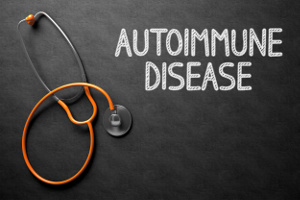 Autoimmune diseases occur in the wake of chronic inflammation and are the result of the immune defense erroneously attacking the body’s own tissues. Rheumatoid arthritis, psoriasis, sclerosis, and Hashimoto’s disease (that causes hypothyroidism) are all examples of autoimmune diseases that primarily affect women and older people. The diet plays a significant role and according to a study published in The British Medical Journal, supplements of vitamin D and fish oil taken for extended periods can lower the rate of autoimmune diseases. This is useful knowledge because these diseases are on the rise and the medicine that is used to treat them often comes with serious side effects.
Autoimmune diseases occur in the wake of chronic inflammation and are the result of the immune defense erroneously attacking the body’s own tissues. Rheumatoid arthritis, psoriasis, sclerosis, and Hashimoto’s disease (that causes hypothyroidism) are all examples of autoimmune diseases that primarily affect women and older people. The diet plays a significant role and according to a study published in The British Medical Journal, supplements of vitamin D and fish oil taken for extended periods can lower the rate of autoimmune diseases. This is useful knowledge because these diseases are on the rise and the medicine that is used to treat them often comes with serious side effects.
- and the huge difference between the omega-3 forms ALA, EPA, and DHA
 Most people lack omega-3 fatty acids acids that are vital for the brain, the nervous system, and the cardiovascular system. Omega-3 fatty acids also have anti-inflammatory and cancer-fighting properties. It is important to consume omega-3 and omega-6 fatty acids in the right balance in order to benefit from their many health effects. But how do we make sure to get enough omega-3 fatty acids that we can utilize? And what is the difference between ALA, EPA, and DHA?
Most people lack omega-3 fatty acids acids that are vital for the brain, the nervous system, and the cardiovascular system. Omega-3 fatty acids also have anti-inflammatory and cancer-fighting properties. It is important to consume omega-3 and omega-6 fatty acids in the right balance in order to benefit from their many health effects. But how do we make sure to get enough omega-3 fatty acids that we can utilize? And what is the difference between ALA, EPA, and DHA?
 It is commonly known that fish oil with its high content of the two omega-3 fatty acids EPA and DHA helps prevent atherosclerosis. According to a new international study, it appears to be DHA that has the major effect. This new insight, which has surprised the scientists, is relevant to public health because cardiovascular disease continues to be the leading cause of death.
It is commonly known that fish oil with its high content of the two omega-3 fatty acids EPA and DHA helps prevent atherosclerosis. According to a new international study, it appears to be DHA that has the major effect. This new insight, which has surprised the scientists, is relevant to public health because cardiovascular disease continues to be the leading cause of death.
- and could potentially be used for prevention and treatment
 It is commonly known that omega-3 fatty acids are involved in a number of essential functions in the body. One of the fatty acids, DHA, may even have a toxic effect on cancer cells because they are unable to store the fatty acid correctly. In a new Belgian study published in Cell Metabolism, scientists explain the exact mechanisms. They also suggest that omega-3 supplements may be useful in cancer therapy, especially because the average omega-3 intake from the diet is far too limited and because there is a risk of becoming resistant to medical cancer drugs. The new study puts omega-3 fatty acids and their anti-cancer effects in a whole new light.
It is commonly known that omega-3 fatty acids are involved in a number of essential functions in the body. One of the fatty acids, DHA, may even have a toxic effect on cancer cells because they are unable to store the fatty acid correctly. In a new Belgian study published in Cell Metabolism, scientists explain the exact mechanisms. They also suggest that omega-3 supplements may be useful in cancer therapy, especially because the average omega-3 intake from the diet is far too limited and because there is a risk of becoming resistant to medical cancer drugs. The new study puts omega-3 fatty acids and their anti-cancer effects in a whole new light.
 The global differences in prostate cancer rates reveal that this type of cancer is associated with lifestyle. For example, Inuits have a very low rate of prostate cancer, which is attributed to their high intake of omega-3 fatty acids from seal, salmon, and other maritime sources. It turns out that the content of the omega-3 fatty acid EPA in prostate cells is a determining factor for how and if the disease develops, according to a new study that is published in Nutrients. Selenium also has anti-cancer properties, especially with relation to prostate cancer, and there are other dietary measures that can make a difference.
The global differences in prostate cancer rates reveal that this type of cancer is associated with lifestyle. For example, Inuits have a very low rate of prostate cancer, which is attributed to their high intake of omega-3 fatty acids from seal, salmon, and other maritime sources. It turns out that the content of the omega-3 fatty acid EPA in prostate cells is a determining factor for how and if the disease develops, according to a new study that is published in Nutrients. Selenium also has anti-cancer properties, especially with relation to prostate cancer, and there are other dietary measures that can make a difference.
 It is well-known that omega-3fatty acids counteract inflammation, which is the common thread in most chronic diseases. A team of scientists from Tufts University in the United States has now discovered that the omega-3 fatty acids, EPA and DHA, which we get from oily fish and fish oil supplements have different anti-inflammatory mechanisms. Their study is published in the science journal Atherosclerosis and supports earlier studies that have shown how important omega-3 is for preventing circulatory diseases, rheumatism, and other lifestyle diseases.
It is well-known that omega-3fatty acids counteract inflammation, which is the common thread in most chronic diseases. A team of scientists from Tufts University in the United States has now discovered that the omega-3 fatty acids, EPA and DHA, which we get from oily fish and fish oil supplements have different anti-inflammatory mechanisms. Their study is published in the science journal Atherosclerosis and supports earlier studies that have shown how important omega-3 is for preventing circulatory diseases, rheumatism, and other lifestyle diseases.
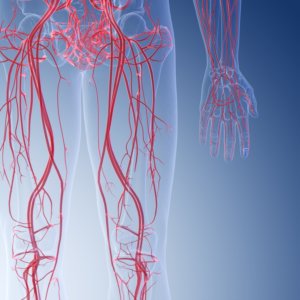 Peripheral circulatory disorders are primarily caused by clogged blood vessels in the extremities. Symptoms typically include walking-induced leg pain, cold hands and feet, or impotence caused by a poor blood supply. According to a new study that is published in the science journal Lipids, people with peripheral circulatory disorders have lower levels of omega-3 in their blood compared with people who do not suffer from these diseases. Omega-3 is believed to have several mechanisms that protect against atherosclerosis. It is also important to make sure to consume omega-3 in the right balance with omega-6.
Peripheral circulatory disorders are primarily caused by clogged blood vessels in the extremities. Symptoms typically include walking-induced leg pain, cold hands and feet, or impotence caused by a poor blood supply. According to a new study that is published in the science journal Lipids, people with peripheral circulatory disorders have lower levels of omega-3 in their blood compared with people who do not suffer from these diseases. Omega-3 is believed to have several mechanisms that protect against atherosclerosis. It is also important to make sure to consume omega-3 in the right balance with omega-6.
 The two omega-3 fatty acids, EPA and DHA, which are found in oily fish and fish oil supplements are of vital importance to the child’s health and cognitive skills. However, according to a large American population study, 25 percent of pregnant women say that they rarely or never eat fish during their pregnancy, and even fewer take fish oil supplements. Lack of omega-3 during pregnancy can have serious consequences for the development of the child. Also, it increases the risk of postpartum depression in the mother. The study authors therefore advise pregnant women to eat oily fish or take a high-quality fish oil supplement.
The two omega-3 fatty acids, EPA and DHA, which are found in oily fish and fish oil supplements are of vital importance to the child’s health and cognitive skills. However, according to a large American population study, 25 percent of pregnant women say that they rarely or never eat fish during their pregnancy, and even fewer take fish oil supplements. Lack of omega-3 during pregnancy can have serious consequences for the development of the child. Also, it increases the risk of postpartum depression in the mother. The study authors therefore advise pregnant women to eat oily fish or take a high-quality fish oil supplement.
- and supplements can often help
 Depression is on the rise. The problem is often caused by inflammation in the brain. The British neuro-immunologist, Edvard Bullmore, has published the thought-provoking book called The Inflamed Mind, in which he describes the link between root canal treatment and depression, among other things. David Perlmutter, a neurologist, has written the book, Grain Brain, where he describes how gluten combined with carbohydrate overload also can cause inflammation in the brain. Depression, in other words, may occur when the blood-brain barrier is not as impermeable as assumed, and when the cytokines of the immune defense are able to cause undesirable brain inflammation. Numerous studies have shown that fish oil, vitamin D, magnesium, zinc, and selenium can improve a person’s mood by counteracting inflammation in the brain and other sites, and there is often a connection. It requires therapeutic doses, however, and it is vital that the supplements have good bioavailability, so the active substances reach the cells.
Depression is on the rise. The problem is often caused by inflammation in the brain. The British neuro-immunologist, Edvard Bullmore, has published the thought-provoking book called The Inflamed Mind, in which he describes the link between root canal treatment and depression, among other things. David Perlmutter, a neurologist, has written the book, Grain Brain, where he describes how gluten combined with carbohydrate overload also can cause inflammation in the brain. Depression, in other words, may occur when the blood-brain barrier is not as impermeable as assumed, and when the cytokines of the immune defense are able to cause undesirable brain inflammation. Numerous studies have shown that fish oil, vitamin D, magnesium, zinc, and selenium can improve a person’s mood by counteracting inflammation in the brain and other sites, and there is often a connection. It requires therapeutic doses, however, and it is vital that the supplements have good bioavailability, so the active substances reach the cells.
 People in the Western part of the world consume far too much omega-6, primarily in the form of linoleic acid from vegetable oils and processed foods such as margarine, fries, chips, and ready meals. A new study that is published in The Journal of Physiology shows that this may be harmful during pregnancy and can increase the risk of complications and developmental disorders in the baby.
People in the Western part of the world consume far too much omega-6, primarily in the form of linoleic acid from vegetable oils and processed foods such as margarine, fries, chips, and ready meals. A new study that is published in The Journal of Physiology shows that this may be harmful during pregnancy and can increase the risk of complications and developmental disorders in the baby.
Earlier studies show that consuming too much omega-6 increases the risk of inflammation and cardiovascular disease. And it is essential to balance your intake of omega-3 and omega-6, whether you are pregnant or not.
- and people are misguided
 Unhealthy eating habits account for one in five deaths globally and are now considered the single most life-threatening risk factor. In most countries, people could reap a lot of health benefits and live longer by eating healthier diets, but it would be wrong to hold each individual responsible because there is an urgent need for international collaboration that involves politicians, agriculture, the food industry, and the health sector, according to a new study (The Global Burden of Disease) that is published in The Lancet. An earlier and larger Czech study published in the science journal Nutrients calls for a paradigm shift with regard to diet recommendations, claiming that the scaremongering about saturated fat and cholesterol should never have been introduced.
Unhealthy eating habits account for one in five deaths globally and are now considered the single most life-threatening risk factor. In most countries, people could reap a lot of health benefits and live longer by eating healthier diets, but it would be wrong to hold each individual responsible because there is an urgent need for international collaboration that involves politicians, agriculture, the food industry, and the health sector, according to a new study (The Global Burden of Disease) that is published in The Lancet. An earlier and larger Czech study published in the science journal Nutrients calls for a paradigm shift with regard to diet recommendations, claiming that the scaremongering about saturated fat and cholesterol should never have been introduced.
– and that may harm your fertility, metabolism, nervous system, and the growth of your child
 Everyone is talking about the climate, and meat has lost popularity for a number of reasons. But let us keep our heads clear on the facts. There is a big difference between CO2 emissions, animal welfare, and the quality or quantity of meat on one hand and the nutritional aspects of meat on the other hand. Humans have been eating meat (including fish) for around two million years, and animal food sources have contributed to our large brains and development in general. Nonetheless, more and more people choose to become vegetarians, and the trend is especially popular among women. This gives rise for concern, as lack of protein, vitamin D, vitamin B12, iodine, selenium, iron, zinc and omega-3 fatty acids not only impairs fertility but even increases the risk of metabolic disorders, serious growth disturbances in children and a lot more. Some of these symptoms are insidious and therefore difficult to link to the diet.
Everyone is talking about the climate, and meat has lost popularity for a number of reasons. But let us keep our heads clear on the facts. There is a big difference between CO2 emissions, animal welfare, and the quality or quantity of meat on one hand and the nutritional aspects of meat on the other hand. Humans have been eating meat (including fish) for around two million years, and animal food sources have contributed to our large brains and development in general. Nonetheless, more and more people choose to become vegetarians, and the trend is especially popular among women. This gives rise for concern, as lack of protein, vitamin D, vitamin B12, iodine, selenium, iron, zinc and omega-3 fatty acids not only impairs fertility but even increases the risk of metabolic disorders, serious growth disturbances in children and a lot more. Some of these symptoms are insidious and therefore difficult to link to the diet.
 Babies and small children are less likely to develop croup if their mothers have taken high-dosed vitamin D and fish oil during their pregnancy, according to a Danish study, where scientists have studied this relation for the very first time. Vitamin D and fish oil also benefit the child’s immune defense and counteract the inflammation in the respiratory system that triggers croup. The two supplements even have a positive impact on the child’s bone health and nervous system, and they also help prevent asthma.
Babies and small children are less likely to develop croup if their mothers have taken high-dosed vitamin D and fish oil during their pregnancy, according to a Danish study, where scientists have studied this relation for the very first time. Vitamin D and fish oil also benefit the child’s immune defense and counteract the inflammation in the respiratory system that triggers croup. The two supplements even have a positive impact on the child’s bone health and nervous system, and they also help prevent asthma.
 Recent studies reveal that vitamin D and omega-3 fatty acids are able to prevent and ameliorate a number of neurological ailments such as depression, ADHD, bipolar disorder, autism, and schizophrenia. There is evidence suggesting that vitamin D and omega-3 fatty acids work by controlling the synthesis of serotonin in the brain. The listed neurological conditions are all characterized by defects in the body’s synthesis of this important neurotransmitter. It is therefore vital to get plenty of sunshine, vitamin D, and omega-3 fatty acids, as widespread deficiencies in all three most likely contribute to the increasing rate of different neurological disorders.
Recent studies reveal that vitamin D and omega-3 fatty acids are able to prevent and ameliorate a number of neurological ailments such as depression, ADHD, bipolar disorder, autism, and schizophrenia. There is evidence suggesting that vitamin D and omega-3 fatty acids work by controlling the synthesis of serotonin in the brain. The listed neurological conditions are all characterized by defects in the body’s synthesis of this important neurotransmitter. It is therefore vital to get plenty of sunshine, vitamin D, and omega-3 fatty acids, as widespread deficiencies in all three most likely contribute to the increasing rate of different neurological disorders.
 Years of scaremongering against fat has had the unfortunate consequence that many women get too few essential fats in their diet, such as the omega 3 fatty acids EPA and DHA. Since we humans are unable to produce them in the body, we rely on a steady supply from our diet. This makes them just as important as vitamins and minerals.
Years of scaremongering against fat has had the unfortunate consequence that many women get too few essential fats in their diet, such as the omega 3 fatty acids EPA and DHA. Since we humans are unable to produce them in the body, we rely on a steady supply from our diet. This makes them just as important as vitamins and minerals.
 Colon polyps are rather common, and there is a specific type of polyps that increases the risk of colon cancer, which is also a widespread problem. According to a new clinical study from the University of Leeds in England, a concentrated form of the omega-3 fatty acid, EPA, which is found in oily fish and fish oil supplements, helps reduce the number of colon polyps. The same is the case with aspirin. The two preparations work differently, however, depending on where in the colon the polyps are found, and aspirin may have long-term side effects. Earlier research has shown that supplements of selenium and antioxidants have a preventive effect, which appears to be even greater.
Colon polyps are rather common, and there is a specific type of polyps that increases the risk of colon cancer, which is also a widespread problem. According to a new clinical study from the University of Leeds in England, a concentrated form of the omega-3 fatty acid, EPA, which is found in oily fish and fish oil supplements, helps reduce the number of colon polyps. The same is the case with aspirin. The two preparations work differently, however, depending on where in the colon the polyps are found, and aspirin may have long-term side effects. Earlier research has shown that supplements of selenium and antioxidants have a preventive effect, which appears to be even greater.











 The majority of chronic ailments, including autoimmune diseases like rheumatoid arthritis, depression, Alzheimer’s disease, diabetes, and cancer, involve inflammation. Science has known for a long time that
The majority of chronic ailments, including autoimmune diseases like rheumatoid arthritis, depression, Alzheimer’s disease, diabetes, and cancer, involve inflammation. Science has known for a long time that  People with elevated levels of
People with elevated levels of  Cardiovascular diseases account for more deaths than anything else. Still, there is a lot of discussion about the diet and its impact on cardiovascular health, typically when it comes to the question of avoiding fat and choosing margarine instead of butter. A team of Czech scientists decided to study diet habits among different populations and compare these with the risk of cardiovascular disease and premature death. Their study shows that there is no need to be afraid of cholesterol. In fact, the official dietary guidelines could easily do with an adjustment. At the same time, it is important to reduce our intake of carbohydrates and omega-6 fatty acids that are the real culprits. Finally, it is essential to increase the intake of omega-3.
Cardiovascular diseases account for more deaths than anything else. Still, there is a lot of discussion about the diet and its impact on cardiovascular health, typically when it comes to the question of avoiding fat and choosing margarine instead of butter. A team of Czech scientists decided to study diet habits among different populations and compare these with the risk of cardiovascular disease and premature death. Their study shows that there is no need to be afraid of cholesterol. In fact, the official dietary guidelines could easily do with an adjustment. At the same time, it is important to reduce our intake of carbohydrates and omega-6 fatty acids that are the real culprits. Finally, it is essential to increase the intake of omega-3. One in nine Danish women gets breast cancer. Diet and lifestyle play a major role, and now an American study shows that
One in nine Danish women gets breast cancer. Diet and lifestyle play a major role, and now an American study shows that  It is commonly known that oily fish and fish oil supplements contain the two omega-3 fatty acids EPA and DHA that are good for the brain. Now, scientists from Singapore have discovered a special omega-3 fatty acid that is of particular importance to brain cells that are surrounded by a protective myeline sheath. The scientists say that their discovery may help prevent brain ageing and lead to the development of new therapies aimed at treating neurological disorders like sclerosis that are associated with myelin damage. Their new study is published in Journal of Clinical Investigation and it appears that fish roe is the best source of these special omega-3 fatty acids that are needed to stimulate the myeline sheath.
It is commonly known that oily fish and fish oil supplements contain the two omega-3 fatty acids EPA and DHA that are good for the brain. Now, scientists from Singapore have discovered a special omega-3 fatty acid that is of particular importance to brain cells that are surrounded by a protective myeline sheath. The scientists say that their discovery may help prevent brain ageing and lead to the development of new therapies aimed at treating neurological disorders like sclerosis that are associated with myelin damage. Their new study is published in Journal of Clinical Investigation and it appears that fish roe is the best source of these special omega-3 fatty acids that are needed to stimulate the myeline sheath. A cold beer with lunch or a glass of red wine to go with your steak may be tempting. In fact, alcohol in limited amounts can be relaxing and it provides beneficial antioxidants. However, Danes drink too much, and our excessive alcohol consumption is one of the worst threats to public health. Many alcoholics suffer from unstable blood sugar levels, which can have a rather bad impact on their willpower. In addition, the empty calories deplete the body’s levels of vitamins, minerals, and essential fatty acids, on which the nervous system, the brain, and the liver depend. This can easily turn into a vicious cycle. Therefore, having stable blood sugar and making sure to get plenty of vital nutrients is important for preventing and treating alcohol abuse.
A cold beer with lunch or a glass of red wine to go with your steak may be tempting. In fact, alcohol in limited amounts can be relaxing and it provides beneficial antioxidants. However, Danes drink too much, and our excessive alcohol consumption is one of the worst threats to public health. Many alcoholics suffer from unstable blood sugar levels, which can have a rather bad impact on their willpower. In addition, the empty calories deplete the body’s levels of vitamins, minerals, and essential fatty acids, on which the nervous system, the brain, and the liver depend. This can easily turn into a vicious cycle. Therefore, having stable blood sugar and making sure to get plenty of vital nutrients is important for preventing and treating alcohol abuse. According to a study that is published in PLoS Medicine’s Special Issue on Dementia shows that low levels of polyunsaturated fatty acids in the brain may speed up the development of Alzheimer’s disease. It is therefore vital not to shy away from dietary fats. What is important, however, is to consume unspoiled sources of
According to a study that is published in PLoS Medicine’s Special Issue on Dementia shows that low levels of polyunsaturated fatty acids in the brain may speed up the development of Alzheimer’s disease. It is therefore vital not to shy away from dietary fats. What is important, however, is to consume unspoiled sources of  An estimated 334 million people worldwide suffer from asthma, which is associated with chronic inflammation. Increased intake of
An estimated 334 million people worldwide suffer from asthma, which is associated with chronic inflammation. Increased intake of  Studies show that large quantities of
Studies show that large quantities of  After giving birth, the mother’s adaptability and resources are put to the test. Also, the mother’s “baby brain” tends to take over. Unfortunately, many new mothers get the baby blues, and around 10 percent develop an actual postpartum depression that requires immediate attention. It is important to focus on the underlying causes that include the course of the delivery plus hormonal, biological, social, and emotional changes.
After giving birth, the mother’s adaptability and resources are put to the test. Also, the mother’s “baby brain” tends to take over. Unfortunately, many new mothers get the baby blues, and around 10 percent develop an actual postpartum depression that requires immediate attention. It is important to focus on the underlying causes that include the course of the delivery plus hormonal, biological, social, and emotional changes. Apparently so.
Apparently so.  Although chronic inflammation is not something that you feel as such, it sets the stage for a number of symptoms and a host of different diseases including fatigue, overweight, diabetes, cardiovascular disease, rheumatism, metabolic disorders, asthma, periodontal disease, bowel infections, depression, Alzheimer’s disease, sclerosis, and cancer. Not surprisingly, people are more and more hooked on the anti-inflammatory lifestyle, and we will take a closer look at studies showing how fish oil, vitamin D, selenium, magnesium, and zinc contribute to preventing and fighting inflammation, related diseases and premature death. Any nutritional supplements must be of a proper quality that the body can absorb, and they should contain therapeutic dosages.
Although chronic inflammation is not something that you feel as such, it sets the stage for a number of symptoms and a host of different diseases including fatigue, overweight, diabetes, cardiovascular disease, rheumatism, metabolic disorders, asthma, periodontal disease, bowel infections, depression, Alzheimer’s disease, sclerosis, and cancer. Not surprisingly, people are more and more hooked on the anti-inflammatory lifestyle, and we will take a closer look at studies showing how fish oil, vitamin D, selenium, magnesium, and zinc contribute to preventing and fighting inflammation, related diseases and premature death. Any nutritional supplements must be of a proper quality that the body can absorb, and they should contain therapeutic dosages. According to a study from Columbia University’s College of Dental Medicine and Vagelos College of Physicians and Surgeons, there are certain compounds in fish oil that can prevent pregnancy complications that follow in the wake of a regular bacterial infection. These complications include miscarriage, preterm delivery, and infant death. There are an estimated 15 million premature deliveries per year on a global scale, and each year around one million babies die as a result of this. Preterm infants also have an increased risk of vision impairment, retarded physical development, and learning disabilities. The researchers therefore suggest new strategies for recommending nutritional supplements and fish oil supplements during pregnancy.
According to a study from Columbia University’s College of Dental Medicine and Vagelos College of Physicians and Surgeons, there are certain compounds in fish oil that can prevent pregnancy complications that follow in the wake of a regular bacterial infection. These complications include miscarriage, preterm delivery, and infant death. There are an estimated 15 million premature deliveries per year on a global scale, and each year around one million babies die as a result of this. Preterm infants also have an increased risk of vision impairment, retarded physical development, and learning disabilities. The researchers therefore suggest new strategies for recommending nutritional supplements and fish oil supplements during pregnancy. A pregnant woman can support the development of her baby’s brain and vision by consuming oily fish regularly, according to a new Finnish study. Meanwhile, a new Danish study shows that fish oil supplements given to pregnant women give their offspring a better start at life because of their content of
A pregnant woman can support the development of her baby’s brain and vision by consuming oily fish regularly, according to a new Finnish study. Meanwhile, a new Danish study shows that fish oil supplements given to pregnant women give their offspring a better start at life because of their content of  Several studies show that nutritional supplements may help against aggressive behavior in children. Based on this knowledge, American researchers have tested the effect of combining supplements of
Several studies show that nutritional supplements may help against aggressive behavior in children. Based on this knowledge, American researchers have tested the effect of combining supplements of 
 If you are pregnant it may be wise to eat salmon. According to a new study it lowers your child's risk of developing asthma, which is a rather common ailment. But what is it in salmon that prevents asthma, and what about those who dislike the taste of fish?
If you are pregnant it may be wise to eat salmon. According to a new study it lowers your child's risk of developing asthma, which is a rather common ailment. But what is it in salmon that prevents asthma, and what about those who dislike the taste of fish? Oily fish and fish oil have a high content of the two omega-3 fatty acids, EPA (eicosapentaenoic acid) and DHA (docosahexaenoic acid), that are important for our brain, nervous system, intelligence, and mental health. Modern diets, however, are to blame for our lack of
Oily fish and fish oil have a high content of the two omega-3 fatty acids, EPA (eicosapentaenoic acid) and DHA (docosahexaenoic acid), that are important for our brain, nervous system, intelligence, and mental health. Modern diets, however, are to blame for our lack of  Oily fish and fish oil contain the long-chained omega-3 fatty acids, EPA and DHA, that are of vital importance to the brain, the nervous system, and our mental health throughout life. Today, most people on a global scale lack these omega-3 fatty acids because of altered dietary habits, including the use of unnatural animal fodder. Low intake of omega-3 increases the risk of various ailments such as ADHD, autism, depression, borderline personality disorder (BPD), and bipolar disorder. Fish oil supplementation may therefore offer promise as prevention and part of the therapy used to treat a number of these disorders. The problem with modern diets is their disproportionate content of omega-6 at the expense of omega-3, an imbalance that may derail a number of physiological functions of importance to our mental health, according to a review article published in the science journal, Nutrients.
Oily fish and fish oil contain the long-chained omega-3 fatty acids, EPA and DHA, that are of vital importance to the brain, the nervous system, and our mental health throughout life. Today, most people on a global scale lack these omega-3 fatty acids because of altered dietary habits, including the use of unnatural animal fodder. Low intake of omega-3 increases the risk of various ailments such as ADHD, autism, depression, borderline personality disorder (BPD), and bipolar disorder. Fish oil supplementation may therefore offer promise as prevention and part of the therapy used to treat a number of these disorders. The problem with modern diets is their disproportionate content of omega-6 at the expense of omega-3, an imbalance that may derail a number of physiological functions of importance to our mental health, according to a review article published in the science journal, Nutrients. Chronic low-grade inflammation has a negative effect on our health. It pummels the body with free radical damage to healthy cells and tissue. Chronic low-grade inflammation is linked to ageing, overweight, type 2 diabetes, cardiovascular disease, and other health problems. In the case of infections, there is also a risk that the immune defense overreacts with hyperinflammation, which can turn out to be very problematic. Now, science has discovered that our gut flora also affects the immune system. Some gut bacteria have a pro-inflammatory effect, while others help fight inflammation. Fish oil’s anti-inflammatory effect involves other mechanisms. Supplements of beneficial gut bacteria, better known as probiotics, and fish oil supplements help increase gut flora diversity. This is good for fighting inflammation, according to a new study published in Nutrients. Another thing to make sure of is to get enough vitamin D.
Chronic low-grade inflammation has a negative effect on our health. It pummels the body with free radical damage to healthy cells and tissue. Chronic low-grade inflammation is linked to ageing, overweight, type 2 diabetes, cardiovascular disease, and other health problems. In the case of infections, there is also a risk that the immune defense overreacts with hyperinflammation, which can turn out to be very problematic. Now, science has discovered that our gut flora also affects the immune system. Some gut bacteria have a pro-inflammatory effect, while others help fight inflammation. Fish oil’s anti-inflammatory effect involves other mechanisms. Supplements of beneficial gut bacteria, better known as probiotics, and fish oil supplements help increase gut flora diversity. This is good for fighting inflammation, according to a new study published in Nutrients. Another thing to make sure of is to get enough vitamin D. Women who are overweight before becoming pregnant have an increased risk of abnormal fetal growth and low birth weight. However, it appears that fish oil supplementation can lower the risk of these complications, according to a new pilot study that is published in the science journal, Nutrients. The scientists behind the study explain how omega-3 fatty acids in fish oil support a healthy pregnancy and help control inflammation, insulin sensitivity, and lipid metabolism, all of which tend to be off balance in overweight pregnant women.
Women who are overweight before becoming pregnant have an increased risk of abnormal fetal growth and low birth weight. However, it appears that fish oil supplementation can lower the risk of these complications, according to a new pilot study that is published in the science journal, Nutrients. The scientists behind the study explain how omega-3 fatty acids in fish oil support a healthy pregnancy and help control inflammation, insulin sensitivity, and lipid metabolism, all of which tend to be off balance in overweight pregnant women. For decades, medical science has claimed that
For decades, medical science has claimed that  Fish oil contains the omega-3 fatty acids, EPA and DHA, which are important for normal development of the baby’s brain and immune defense. Pregnant women who eat oily fish several times a week help their babies against developing asthma later in life. Oily fish and fish oil supplements have similar effects. This was shown in two studies from the University of South Florida in Tampa, USA. However, pregnant women should avoid predatory fish like tuna that contain mercury. For those who dislike the taste of fish or who simply do not eat enough, fish oil supplements are an option.
Fish oil contains the omega-3 fatty acids, EPA and DHA, which are important for normal development of the baby’s brain and immune defense. Pregnant women who eat oily fish several times a week help their babies against developing asthma later in life. Oily fish and fish oil supplements have similar effects. This was shown in two studies from the University of South Florida in Tampa, USA. However, pregnant women should avoid predatory fish like tuna that contain mercury. For those who dislike the taste of fish or who simply do not eat enough, fish oil supplements are an option. The number of seniors in the world is growing steadily which means a surge in problems like cardiovascular disease, cancer, respiratory illnesses, overweight, diabetes, rheumatism, dementia, and Alzheimer’s disease. These diseases that have a widespread impact on human lives and are a burden to society are often linked to chronic inflammation. A group of scientists therefore decided to look closer at studies that have found a positive effect of the omega-3 fatty acids EPA and DHA on cognitive functioning, maintenance of muscle mass, and prevention and treatment of a host of serious diseases that are related to ageing. It is vital to start supplementing early and to take the right doses, according to the new review article published in Nutrients.
The number of seniors in the world is growing steadily which means a surge in problems like cardiovascular disease, cancer, respiratory illnesses, overweight, diabetes, rheumatism, dementia, and Alzheimer’s disease. These diseases that have a widespread impact on human lives and are a burden to society are often linked to chronic inflammation. A group of scientists therefore decided to look closer at studies that have found a positive effect of the omega-3 fatty acids EPA and DHA on cognitive functioning, maintenance of muscle mass, and prevention and treatment of a host of serious diseases that are related to ageing. It is vital to start supplementing early and to take the right doses, according to the new review article published in Nutrients. Fish oil contains EPA and DHA, two omega-3 fatty acids with a number of different functions in the brain and nervous system. It appears that middle-aged people who consume more oily fish or who take fish oil supplements have improvements in their brain structure and cognitive skills. This was shown in a study that is published in Neurology. The study results are quite interesting because cognitive decline and dementia are increasing problems that affect millions of people worldwide. The study supports previous research where it was seen that having higher concentrations of DHA in the red blood cell can reduce the risk of Alzheimer’s disease by 50 percent.
Fish oil contains EPA and DHA, two omega-3 fatty acids with a number of different functions in the brain and nervous system. It appears that middle-aged people who consume more oily fish or who take fish oil supplements have improvements in their brain structure and cognitive skills. This was shown in a study that is published in Neurology. The study results are quite interesting because cognitive decline and dementia are increasing problems that affect millions of people worldwide. The study supports previous research where it was seen that having higher concentrations of DHA in the red blood cell can reduce the risk of Alzheimer’s disease by 50 percent.
 Fish oil contains the long-chained
Fish oil contains the long-chained  Depression is often caused by brain inflammation, and it looks as if high-dosed supplementation with EPA, a type of
Depression is often caused by brain inflammation, and it looks as if high-dosed supplementation with EPA, a type of  Premature delivery increases the baby’s risk of being born with developmental disturbances or dying within its first months of life. It is commonly known that
Premature delivery increases the baby’s risk of being born with developmental disturbances or dying within its first months of life. It is commonly known that  A well-functioning memory is vital for our quality of life. With the increasing number of seniors, however, the dementia rate is on an incline. According to a study that is published in Clinical Nutrition, it looks as if a combination of fish oil and antioxidants such as lutein and zeaxanthin may improve memory in elderly seniors. You can support your brain and memory on a daily basis by eating oily fish or fish oil supplements together with antioxidants from foods such as cabbage, spinach and other leafy greens, and eggs. Another important antioxidant is mezo-zeaxanthin that is found in certain fish and in fish skin.
A well-functioning memory is vital for our quality of life. With the increasing number of seniors, however, the dementia rate is on an incline. According to a study that is published in Clinical Nutrition, it looks as if a combination of fish oil and antioxidants such as lutein and zeaxanthin may improve memory in elderly seniors. You can support your brain and memory on a daily basis by eating oily fish or fish oil supplements together with antioxidants from foods such as cabbage, spinach and other leafy greens, and eggs. Another important antioxidant is mezo-zeaxanthin that is found in certain fish and in fish skin. Heart failure is a disease with a variety of different symptoms and a high mortality rate because the heart’s pumping function is impaired. Heart failure is also characterized by chronic inflammation that worsens the prognosis. Apparently, fish oil supplementation can reduce chronic inflammation, according to a meta-analysis that is published in Heart Failure Reviews. In fact, eating more
Heart failure is a disease with a variety of different symptoms and a high mortality rate because the heart’s pumping function is impaired. Heart failure is also characterized by chronic inflammation that worsens the prognosis. Apparently, fish oil supplementation can reduce chronic inflammation, according to a meta-analysis that is published in Heart Failure Reviews. In fact, eating more 
 On a global scale, atherosclerosis is the leading cause of death due to heart failure or stroke. Atherosclerosis causes symptoms such as breathing difficulty, calf pain,
On a global scale, atherosclerosis is the leading cause of death due to heart failure or stroke. Atherosclerosis causes symptoms such as breathing difficulty, calf pain, On a global scale, cardiovascular disease and coronary occlusion cause more deaths than any other factor. However, according to a large meta-analysis from Harvard T. H. Chan School of Public Health and Brigham and Women’s Hospital in Boston, USA, people who take
On a global scale, cardiovascular disease and coronary occlusion cause more deaths than any other factor. However, according to a large meta-analysis from Harvard T. H. Chan School of Public Health and Brigham and Women’s Hospital in Boston, USA, people who take  According to two clinical studies, daily supplementation with the
According to two clinical studies, daily supplementation with the  The human brain needs
The human brain needs  Many young men have poor sperm quality and the underlying cause is often unknown. The health of sperm cells depends a lot on
Many young men have poor sperm quality and the underlying cause is often unknown. The health of sperm cells depends a lot on  Heart failure affects millions of people worldwide and many die within the first year of being hospitalized with acute heart failure. However, eating a diet that is rich in the omega-3 fatty acid EPA from oily fish and ALA from plant foods such as walnuts is linked to a lower risk of blood clots and early death, according to a new study that is published in Journal of the American College of Cardiology. You can also read more about another compound that improves cardiac function and survival after acute heart failure.
Heart failure affects millions of people worldwide and many die within the first year of being hospitalized with acute heart failure. However, eating a diet that is rich in the omega-3 fatty acid EPA from oily fish and ALA from plant foods such as walnuts is linked to a lower risk of blood clots and early death, according to a new study that is published in Journal of the American College of Cardiology. You can also read more about another compound that improves cardiac function and survival after acute heart failure. If you consume too much red meat it may increase your risk of colon cancer, but is there meat with the opposite effect? According to a new and groundbreaking study, eating salmon or other good sources of
If you consume too much red meat it may increase your risk of colon cancer, but is there meat with the opposite effect? According to a new and groundbreaking study, eating salmon or other good sources of 
 Oily fish and fish oil supplements contain EPA and DHA, two types of omega-3 fatty acids that are important for our brain, nervous system, and mental health throughout life. According to a new Irish study, young adults with higher blood levels of
Oily fish and fish oil supplements contain EPA and DHA, two types of omega-3 fatty acids that are important for our brain, nervous system, and mental health throughout life. According to a new Irish study, young adults with higher blood levels of  Scientists have discussed for quite some time to what extent
Scientists have discussed for quite some time to what extent  People who suffer from dry eyes have reduced tear production. The condition has become increasingly common because of all the hours we spend staring at screens from devices like smartphones, computers, tablets etc. Dry eyes are irritated, and the problem may cause damage to both your eyes and eyesight. However, a team of scientists from the Hokkaido University in Japan has demonstrated that healthy fats such as
People who suffer from dry eyes have reduced tear production. The condition has become increasingly common because of all the hours we spend staring at screens from devices like smartphones, computers, tablets etc. Dry eyes are irritated, and the problem may cause damage to both your eyes and eyesight. However, a team of scientists from the Hokkaido University in Japan has demonstrated that healthy fats such as  The mitochondria are the powerhouses of our cells that churn out energy in a process that involves oxygen, Q10, selenium, and other nutrients. Around 100 years ago, the German Nobel Prize winner, Professor Otto Warburg, demonstrated that even if cancer can be caused by a number of secondary factors, there is only one primary cause: alterations in the mitochondrial oxygen turnover. In his recent book, Tripping over the Truth, molecular biologist Travis Christoffersen describes how contemporary scientists confirm Warburg’s theories and says that we need to look at prevention and cancer treatment from an entirely different angle. Other studies show that Parkinson’s disease, migraine, senility, chronic fatigue, fibromyalgia, epilepsy, and other neurological disorders may be rooted in defects of the mitochondria that have many other functions besides delivering energy. It is therefore vital to take care of the mitochondria throughout life. You can read more about the ketogenic diet that optimizes mitochondrial energy turnover in different mitochondrial diseases.
The mitochondria are the powerhouses of our cells that churn out energy in a process that involves oxygen, Q10, selenium, and other nutrients. Around 100 years ago, the German Nobel Prize winner, Professor Otto Warburg, demonstrated that even if cancer can be caused by a number of secondary factors, there is only one primary cause: alterations in the mitochondrial oxygen turnover. In his recent book, Tripping over the Truth, molecular biologist Travis Christoffersen describes how contemporary scientists confirm Warburg’s theories and says that we need to look at prevention and cancer treatment from an entirely different angle. Other studies show that Parkinson’s disease, migraine, senility, chronic fatigue, fibromyalgia, epilepsy, and other neurological disorders may be rooted in defects of the mitochondria that have many other functions besides delivering energy. It is therefore vital to take care of the mitochondria throughout life. You can read more about the ketogenic diet that optimizes mitochondrial energy turnover in different mitochondrial diseases. Fish is good source of
Fish is good source of  Breast cancer is the number one cause of cancer-related deaths among women worldwide. The diet has huge importance and according to a new Polish study, eating more fish with
Breast cancer is the number one cause of cancer-related deaths among women worldwide. The diet has huge importance and according to a new Polish study, eating more fish with  Alzheimer’s disease is the leading cause of dementia. Science has observed changes in the brain that show decades before the disease surfaces. According to a study carried out by the Italian neurologist Lisa Mosconi, eating a Mediterranean diet helps lower the risk of some of these changes that signal the onset of the disease. The study results suggest that one can help prevent this common neurological disorder by eating Mediterranean-style food. What is also important is to focus on having stable blood sugar levels and getting the right nutrients that strengthen and protect the brain.
Alzheimer’s disease is the leading cause of dementia. Science has observed changes in the brain that show decades before the disease surfaces. According to a study carried out by the Italian neurologist Lisa Mosconi, eating a Mediterranean diet helps lower the risk of some of these changes that signal the onset of the disease. The study results suggest that one can help prevent this common neurological disorder by eating Mediterranean-style food. What is also important is to focus on having stable blood sugar levels and getting the right nutrients that strengthen and protect the brain. During menopause, many women experience hot flushes, mood swings, impaired sleep, sensitive mucous membranes, aching joints, and several other problems. However, most of these symptoms occur as a result of our lifestyle not being properly adjusted to our evolutionary heritage. For that reason, simple dietary adjustments and supplements with essential nutrients can often reduce the annoying symptoms.
During menopause, many women experience hot flushes, mood swings, impaired sleep, sensitive mucous membranes, aching joints, and several other problems. However, most of these symptoms occur as a result of our lifestyle not being properly adjusted to our evolutionary heritage. For that reason, simple dietary adjustments and supplements with essential nutrients can often reduce the annoying symptoms. The whole climate debate has made it increasingly popular to become a vegetarian or a vegan. However, according to a new and comprehensive study from Oxford, this choice of lifestyle may have grave health consequences and can increase your risk of apoplexy, also known as stroke, cerebral hemorrhage or cerebral thrombosis. The study is published in British Medical Journal. Earlier studies also give rise to concern, as a plant-based diet often lacks protein, vitamin D, vitamin B12, iodine, selenium, iron, and omega-3 fatty acids, and that can increase the risk of thyroid disorders, neurological disorders, infections, chronic inflammation, impaired fertility, growth disturbances in children etc. Some of these deficiencies are insidious and difficult to link to the diet.
The whole climate debate has made it increasingly popular to become a vegetarian or a vegan. However, according to a new and comprehensive study from Oxford, this choice of lifestyle may have grave health consequences and can increase your risk of apoplexy, also known as stroke, cerebral hemorrhage or cerebral thrombosis. The study is published in British Medical Journal. Earlier studies also give rise to concern, as a plant-based diet often lacks protein, vitamin D, vitamin B12, iodine, selenium, iron, and omega-3 fatty acids, and that can increase the risk of thyroid disorders, neurological disorders, infections, chronic inflammation, impaired fertility, growth disturbances in children etc. Some of these deficiencies are insidious and difficult to link to the diet.
 Contact sports like football and boxing are associated with frequent blows to the head that can cause physical traumas and long-term effects. However, a new study that is published in Journal of the International Society of Sports Nutrition suggests that high-dosed supplements of
Contact sports like football and boxing are associated with frequent blows to the head that can cause physical traumas and long-term effects. However, a new study that is published in Journal of the International Society of Sports Nutrition suggests that high-dosed supplements of  British scientists have tested whether
British scientists have tested whether  It is common knowledge that
It is common knowledge that  Schizophrenia is a serious psychotic condition with delusions and hallucinations, which can be very taxing for the sufferer as well as for the rest of the family. Most people experience a slow and gradual worsening of the brain ailment, and the disease may even spread to other organs. On average, people who suffer from schizophrenia die 10 years earlier than the general population, which is why it is vital to prevent the disease or ameliorate its symptoms. Scientists have discovered that supplementing with
Schizophrenia is a serious psychotic condition with delusions and hallucinations, which can be very taxing for the sufferer as well as for the rest of the family. Most people experience a slow and gradual worsening of the brain ailment, and the disease may even spread to other organs. On average, people who suffer from schizophrenia die 10 years earlier than the general population, which is why it is vital to prevent the disease or ameliorate its symptoms. Scientists have discovered that supplementing with  Everyone has the desire to stay as youthful as possible, to be healthy, and to be able to enjoy senior life with good cognitive functioning and the ability to remain physically active. Of course, this requires that we take good care of ourselves, and a healthy diet is extremely important. It turns out that having high blood levels of
Everyone has the desire to stay as youthful as possible, to be healthy, and to be able to enjoy senior life with good cognitive functioning and the ability to remain physically active. Of course, this requires that we take good care of ourselves, and a healthy diet is extremely important. It turns out that having high blood levels of  Premature infants have a higher risk of development disturbances. On a global scale, preterm delivery is the leading cause of death among children younger than five years of age. Pregnant women, who increase their intake of
Premature infants have a higher risk of development disturbances. On a global scale, preterm delivery is the leading cause of death among children younger than five years of age. Pregnant women, who increase their intake of  According to a study from Ohio State University, Columbus, USA, people suffering from dry eyes may find relief by consuming more oily fish or taking a fish oil supplement.
According to a study from Ohio State University, Columbus, USA, people suffering from dry eyes may find relief by consuming more oily fish or taking a fish oil supplement. According to a large meta-analysis, supplementing with
According to a large meta-analysis, supplementing with 
 A growing number of people are affected by depression and anxiety, and there are quite a few who do not benefit from their medicine, which in some cases may even cause side effects. Earlier studies show that lack of
A growing number of people are affected by depression and anxiety, and there are quite a few who do not benefit from their medicine, which in some cases may even cause side effects. Earlier studies show that lack of  Oily fish is a great source of the essential omega-3 fatty acids, EPA and DHA, which are important for the development of the brain and nervous system of the unborn child. Pregnant women with low levels of these two omega-3 fatty acids have a statistically significant increased risk of preterm delivery compared with pregnant women who have high levels of EPA and DHA in their blood. This was shown in a study from SSI in Copenhagen, carried out in collaboration with Harvard T.H. Chan School of Public Health in Boston, the United States. The problem is that many women are afraid to eat oily fish during their pregnancy because of the risk of mercury poisoning. So which fish are the safest for consumption – and what about fish oil supplements?
Oily fish is a great source of the essential omega-3 fatty acids, EPA and DHA, which are important for the development of the brain and nervous system of the unborn child. Pregnant women with low levels of these two omega-3 fatty acids have a statistically significant increased risk of preterm delivery compared with pregnant women who have high levels of EPA and DHA in their blood. This was shown in a study from SSI in Copenhagen, carried out in collaboration with Harvard T.H. Chan School of Public Health in Boston, the United States. The problem is that many women are afraid to eat oily fish during their pregnancy because of the risk of mercury poisoning. So which fish are the safest for consumption – and what about fish oil supplements? Psoriasis patients are generally interested in their diet and how it affects their disease. So far, there has not been much data so far to support a connection, but a new American study has mapped out the exact effects of regular diet habits and various supplements.
Psoriasis patients are generally interested in their diet and how it affects their disease. So far, there has not been much data so far to support a connection, but a new American study has mapped out the exact effects of regular diet habits and various supplements.
 Autoimmune diseases occur in the wake of chronic inflammation and are the result of the immune defense erroneously attacking the body’s own tissues. Rheumatoid arthritis, psoriasis, sclerosis, and Hashimoto’s disease (that causes hypothyroidism) are all examples of autoimmune diseases that primarily affect women and older people. The diet plays a significant role and according to a study published in The British Medical Journal, supplements of vitamin D and fish oil taken for extended periods can lower the rate of autoimmune diseases. This is useful knowledge because these diseases are on the rise and the medicine that is used to treat them often comes with serious side effects.
Autoimmune diseases occur in the wake of chronic inflammation and are the result of the immune defense erroneously attacking the body’s own tissues. Rheumatoid arthritis, psoriasis, sclerosis, and Hashimoto’s disease (that causes hypothyroidism) are all examples of autoimmune diseases that primarily affect women and older people. The diet plays a significant role and according to a study published in The British Medical Journal, supplements of vitamin D and fish oil taken for extended periods can lower the rate of autoimmune diseases. This is useful knowledge because these diseases are on the rise and the medicine that is used to treat them often comes with serious side effects. Most people lack
Most people lack  It is commonly known that fish oil with its high content of the two omega-3 fatty acids EPA and DHA helps prevent atherosclerosis. According to a new international study, it appears to be DHA that has the major effect. This new insight, which has surprised the scientists, is relevant to public health because cardiovascular disease continues to be the leading cause of death.
It is commonly known that fish oil with its high content of the two omega-3 fatty acids EPA and DHA helps prevent atherosclerosis. According to a new international study, it appears to be DHA that has the major effect. This new insight, which has surprised the scientists, is relevant to public health because cardiovascular disease continues to be the leading cause of death. It is commonly known that omega-3 fatty acids are involved in a number of essential functions in the body. One of the fatty acids, DHA, may even have a toxic effect on cancer cells because they are unable to store the fatty acid correctly. In a new Belgian study published in Cell Metabolism, scientists explain the exact mechanisms. They also suggest that omega-3 supplements may be useful in cancer therapy, especially because the average
It is commonly known that omega-3 fatty acids are involved in a number of essential functions in the body. One of the fatty acids, DHA, may even have a toxic effect on cancer cells because they are unable to store the fatty acid correctly. In a new Belgian study published in Cell Metabolism, scientists explain the exact mechanisms. They also suggest that omega-3 supplements may be useful in cancer therapy, especially because the average  The global differences in prostate cancer rates reveal that this type of cancer is associated with lifestyle. For example, Inuits have a very low rate of prostate cancer, which is attributed to their high intake of
The global differences in prostate cancer rates reveal that this type of cancer is associated with lifestyle. For example, Inuits have a very low rate of prostate cancer, which is attributed to their high intake of  It is well-known that
It is well-known that  Peripheral circulatory disorders are primarily caused by clogged blood vessels in the extremities. Symptoms typically include walking-induced leg pain, cold hands and feet, or impotence caused by a poor blood supply. According to a new study that is published in the science journal Lipids, people with peripheral circulatory disorders have lower levels of
Peripheral circulatory disorders are primarily caused by clogged blood vessels in the extremities. Symptoms typically include walking-induced leg pain, cold hands and feet, or impotence caused by a poor blood supply. According to a new study that is published in the science journal Lipids, people with peripheral circulatory disorders have lower levels of 
 Depression is on the rise. The problem is often caused by inflammation in the brain. The British neuro-immunologist, Edvard Bullmore, has published the thought-provoking book called The Inflamed Mind, in which he describes the link between root canal treatment and depression, among other things. David Perlmutter, a neurologist, has written the book, Grain Brain, where he describes how gluten combined with carbohydrate overload also can cause inflammation in the brain. Depression, in other words, may occur when the blood-brain barrier is not as impermeable as assumed, and when the cytokines of the immune defense are able to cause undesirable brain inflammation. Numerous studies have shown that fish oil, vitamin D, magnesium, zinc, and selenium can improve a person’s mood by counteracting inflammation in the brain and other sites, and there is often a connection. It requires therapeutic doses, however, and it is vital that the supplements have good bioavailability, so the active substances reach the cells.
Depression is on the rise. The problem is often caused by inflammation in the brain. The British neuro-immunologist, Edvard Bullmore, has published the thought-provoking book called The Inflamed Mind, in which he describes the link between root canal treatment and depression, among other things. David Perlmutter, a neurologist, has written the book, Grain Brain, where he describes how gluten combined with carbohydrate overload also can cause inflammation in the brain. Depression, in other words, may occur when the blood-brain barrier is not as impermeable as assumed, and when the cytokines of the immune defense are able to cause undesirable brain inflammation. Numerous studies have shown that fish oil, vitamin D, magnesium, zinc, and selenium can improve a person’s mood by counteracting inflammation in the brain and other sites, and there is often a connection. It requires therapeutic doses, however, and it is vital that the supplements have good bioavailability, so the active substances reach the cells. People in the Western part of the world consume far too much omega-6, primarily in the form of linoleic acid from vegetable oils and processed foods such as margarine, fries, chips, and ready meals. A new study that is published in The Journal of Physiology shows that this may be harmful during pregnancy and can increase the risk of complications and developmental disorders in the baby.
People in the Western part of the world consume far too much omega-6, primarily in the form of linoleic acid from vegetable oils and processed foods such as margarine, fries, chips, and ready meals. A new study that is published in The Journal of Physiology shows that this may be harmful during pregnancy and can increase the risk of complications and developmental disorders in the baby. Unhealthy eating habits account for one in five deaths globally and are now considered the single most life-threatening risk factor. In most countries, people could reap a lot of health benefits and live longer by eating healthier diets, but it would be wrong to hold each individual responsible because there is an urgent need for international collaboration that involves politicians, agriculture, the food industry, and the health sector, according to a new study (The Global Burden of Disease) that is published in The Lancet. An earlier and larger Czech study published in the science journal Nutrients calls for a paradigm shift with regard to diet recommendations, claiming that the scaremongering about saturated fat and cholesterol should never have been introduced.
Unhealthy eating habits account for one in five deaths globally and are now considered the single most life-threatening risk factor. In most countries, people could reap a lot of health benefits and live longer by eating healthier diets, but it would be wrong to hold each individual responsible because there is an urgent need for international collaboration that involves politicians, agriculture, the food industry, and the health sector, according to a new study (The Global Burden of Disease) that is published in The Lancet. An earlier and larger Czech study published in the science journal Nutrients calls for a paradigm shift with regard to diet recommendations, claiming that the scaremongering about saturated fat and cholesterol should never have been introduced. Everyone is talking about the climate, and meat has lost popularity for a number of reasons. But let us keep our heads clear on the facts. There is a big difference between CO2 emissions, animal welfare, and the quality or quantity of meat on one hand and the nutritional aspects of meat on the other hand. Humans have been eating meat (including fish) for around two million years, and animal food sources have contributed to our large brains and development in general. Nonetheless, more and more people choose to become vegetarians, and the trend is especially popular among women. This gives rise for concern, as lack of protein, vitamin D, vitamin B12, iodine, selenium, iron, zinc and omega-3 fatty acids not only impairs fertility but even increases the risk of metabolic disorders, serious growth disturbances in children and a lot more. Some of these symptoms are insidious and therefore difficult to link to the diet.
Everyone is talking about the climate, and meat has lost popularity for a number of reasons. But let us keep our heads clear on the facts. There is a big difference between CO2 emissions, animal welfare, and the quality or quantity of meat on one hand and the nutritional aspects of meat on the other hand. Humans have been eating meat (including fish) for around two million years, and animal food sources have contributed to our large brains and development in general. Nonetheless, more and more people choose to become vegetarians, and the trend is especially popular among women. This gives rise for concern, as lack of protein, vitamin D, vitamin B12, iodine, selenium, iron, zinc and omega-3 fatty acids not only impairs fertility but even increases the risk of metabolic disorders, serious growth disturbances in children and a lot more. Some of these symptoms are insidious and therefore difficult to link to the diet. Babies and small children are less likely to develop croup if their mothers have taken high-dosed
Babies and small children are less likely to develop croup if their mothers have taken high-dosed  Recent studies reveal that
Recent studies reveal that 
 "After about one week of taking the Q10 supplement I could feel a huge difference," says 23-year old Alan Piccini, who has been suffering from extreme fatigue and muscle aches ever since he was a child.
"After about one week of taking the Q10 supplement I could feel a huge difference," says 23-year old Alan Piccini, who has been suffering from extreme fatigue and muscle aches ever since he was a child. “Taking capsules with co-enzyme Q10 has freed me of the severe side effects of my cholesterol lowering medicine,” Mrs Franken explains.
“Taking capsules with co-enzyme Q10 has freed me of the severe side effects of my cholesterol lowering medicine,” Mrs Franken explains.